The Honors College at the University of Maine






The Honors College at the University of Maine






Ibegan my Honors deanship here at the University of Maine drawn by the opportunity to join a program that had such a distinguished history, to work with amazing faculty and staff to deliver high-impact educational experiences to our students, and to participate in a moment of transformational change at the university. From the moment I arrived on campus, it was clear that at the heart of the UMaine Honors College was a deep, abiding commitment to helping students find their passions and their purpose. In this issue of Minerva, we showcase how passion and purpose spur our extraordinary students—both past and present—and drive our initiatives. You will hear from some of our alumni about how the Honors College opened new paths and possibilities—how, in the words of Professor Caitlin Howell, “Participating in Honors allowed me to stretch myself more than would have otherwise been possible and figure out what I cared about.” You will learn about the powerful legacy of Debbie Lipscomb, whose passionate desire to help students from Maine led to the establishment of a scholarship designed to lower economic barriers faced by Honors/ Engineering students. As usual, we feature several of our extraordinary students, including Delaney Burns (’22), whose passion for bristlecone pine trees led her to do a creative thesis that exists at the intersection of art and science. A sample of Delaney’s stunning work graces our cover. Finally, this issue of Minerva will allow you to learn a bit more about me and what drives and motivates me in my work with students and colleagues. I am grateful to be working with dedicated alumni, faculty, staff, and students as we build on our past and forge our future.
If you are a graduate whose Honors experience helped you hone your interests and find your path, we’d love to hear your story! Please share it with us by reaching out to me or contacting us at honors@maine.edu!
Ellen Weinauer Dean, Honors College
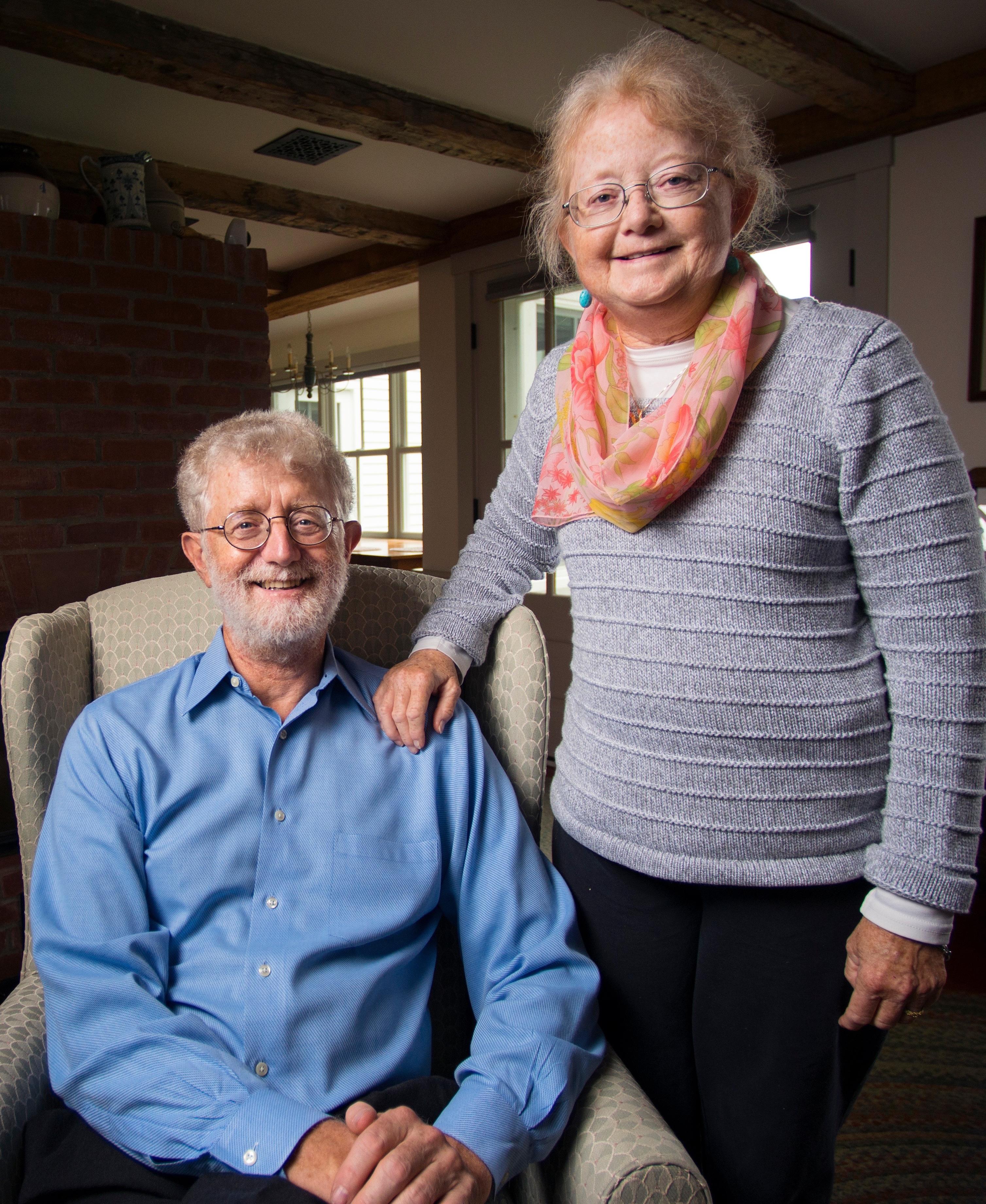
By: Patricia Cummings
Whenphilanthropist Debbie Lipscomb and her husband, Dr. Denham Ward, UMaine Class of ’69, shared Debbie’s decision to stop her dialysis treatments in October 2021, I began to reflect on her courage living with type 1 diabetes and chronic kidney disease. For as long as I’d known Debbie, she walked with a cane. Yet her focus was always on others, as a supportive spouse, proud mother, and as a special education teacher’s aide. She was a compassionate listener, who focused on what she or society could do to help others. When Debbie passed away on December 25, 2021, with her husband and daughter by her side, the University of Maine lost one of its great champions.
A Phi Beta Kappa graduate of Occidental College, Debbie majored in linguistics and Russian. She started her own graphic design business—RighType & Graphics in Van Nuys, California. She joked that even back then it sometimes was mistaken for a dating service. Debbie met Denham Ward, then a UCLA student, in the 1970s and eventually the couple
married and had a daughter, Hannah. The family settled in Rochester, NY, where Denham had taken a job as the Chair of Anesthesiology at the University of Rochester. They stayed in Rochester until 2011, when Denham and Debbie retired to Bowdoinham, Maine, to the house and land that had been in Denham’s family since 1840. Debbie enjoyed her dogs, cruising on their boat throughout the Great Lakes, and worldwide travel.
It was through Denham—an Honors graduate who earned his B.S. in Electrical Engineering at the University of Maine before earning an M.D. at the University of Miami and Ph.D. at UCLA—that Debbie became a fierce supporter of UMaine and its students. Debbie was a second-generation Los Angeles native, but she adopted the state of Maine as her true home. In 2016, the couple established the Ward-Lipscomb Scholarship, which provides financial assistance to students who are pursuing both Honors and Engineering at UMaine. Debbie was the first in her family to go to college and she
Pat Cummings is a Senior Director of Philanthropy at the University of Maine Foundation.
had a passion for giving access to higher education to first-generation Maine college students, and together with Denham, wished them to experience the full enrichment of the Honors College. Over the years, the couple’s generosity has provided more than $160,000 to just such students.
Denham and Debbie enjoyed cheering the UMaine men’s hockey team as guests in the President’s skybox. Whenever they visited campus, they sought opportunities to engage with Honors College students and faculty, mentoring their scholarship recipients and pre-med students. Debbie was particularly impressed by the personal, often creative, thank yous they received, such as the video of Sarah MeyerWaldo’s dance performance and thesis project, “I am a River.”
The pictures I hold in my heart are Debbie beaming with pride for students like Sarah, or listening intently to Patrick Breeding and Amber Boutiette present their biomedical engineering capstone breathing simulator, a device inspired by Denham’s desire to help medical students identify breathing difficulties in children. To understand Debbie’s selflessness is to appreciate her core value of philanthropy. In her estate, Debbie left a $1 million bequest to the University of Maine Foundation to add to the Denham Ward and Debra Lipscomb Scholarship fund.
I am humbly grateful for my nearly 20-year friendship with Debbie Lipscomb. Debbie has gone on to explore the mysteries of the universe, but her legacy will live on in the students who have benefitted from her giving heart.

A mechanical engineering Honors graduate and Ward-Lipscomb scholarship recipient, Sarah Meyer-Waldo’s thesis exemplifies the interdisciplinarity central to Honors. For her engineering capstone project, Sarah worked with a team to design and build a prototype robotic walker with a braking system that can sense if users are falling. By contrast, Sarah’s Honors thesis, My Life of Dance: Teshuvah, was an independent, creative project using dance and poetry “as a means to engage more fully with my own mental/philosophical experience.” While these might seem like divergent endeavors, Sarah sees them as deeply connected:
“There is a phrase in engineering called minimal viable product—mvp. You focus on the minimum requirements, on doing them with quality and efficiency, before adding on anything beyond this. The same is important for art. Sometimes we dream so big it is hard to make anything happen, but we start with the mvp: the root, the base, the foundation of what we need to do. Then we can build up from there. … Ballet and mathematics are both about precision. The patience and the practice that goes into attaining that precision in both dance and mathematics/engineering is an experience I find very akin to one another.”
The Ward-Lipscomb Scholarship enabled Sarah to nurture her passions for both Honors and Engineering:
“I am beyond grateful that the Ward-Lipscomb scholarship led me back to the Honors College’s humanities courses I so dearly needed…It was the support of this scholarship that not only made it possible, but also motivated me to continue with [Honors] into my thesis.”

Arecent initiative by the Honors College to reflect on our mission as we look to the future led us to conversations with more than a hundred faculty, staff, students, supporters, and alumni who offered a wealth of insight on the value of their Honors experience. The alumni featured here remind us of the lasting impact that Honors has on students from different eras, majors, and career paths. They speak of membership in a community with a shared passion for
“The Honors College was the highlight of my education at UMaine. I truly relished the time spent with my peers in the classroom, learning about the formative historical texts and literature, and forging life-long friendships. … The Honors education has shaped my character and I grew more confident to make a career out of curiosity and pursue journalism.”
Aliya Uteuova
learning, classes that encouraged different ways of thinking, a place that fostered curiosity, and one that empowered them to ask good questions.
Igniting a passion for learning is the motto of the Honors College. As we look to the future we hope to honor this legacy, preserving the best of what Honors has to offer even as we innovate and design the Honors College of the 21st century.
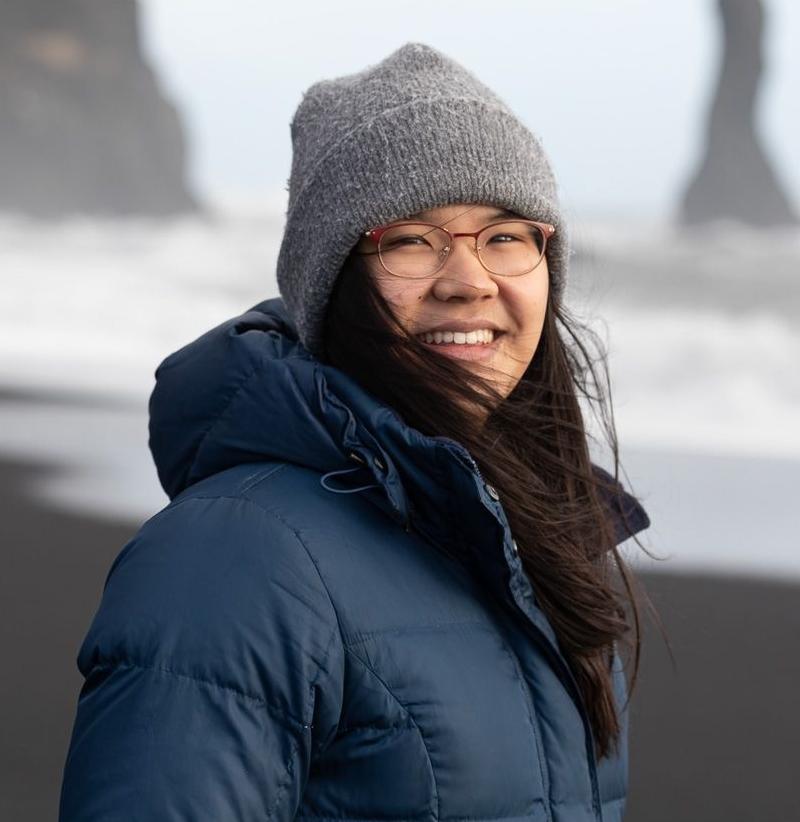
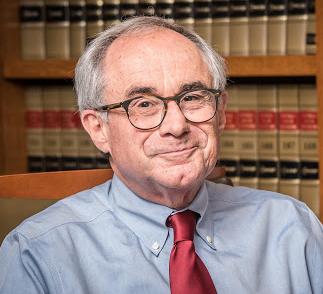
“Education is not simply learning facts. You can always find facts. Education should teach you to think outside your initial thought process. Look at the Honors program not as a vehicle to teach facts; look at it as a way to expand your mind— to develop ways of analyzing issues from multiple perspectives. That is the goal of education. The Honors program remains with me today. As I tell my law clerks, the most important thing is not to know the answer, but to know the proper question. Without knowing the proper question, you will never arrive at the correct answer.
That’s the Honors program.”
George Singal
“The Honors sequence taught me that the ideas, institutions, and cultural products that are today boxed into distinct professional categories were in the past seen as far more interconnected and mutually informing.
Familiarity with this history, and the modes of thought and expression contained within it, has irrevocably changed for the better the way I approach being a citizen of the world, and has helped me develop capacities for critical thinking, historical perspective, and empathy that effective citizenship requires.”
Jeremy Swist

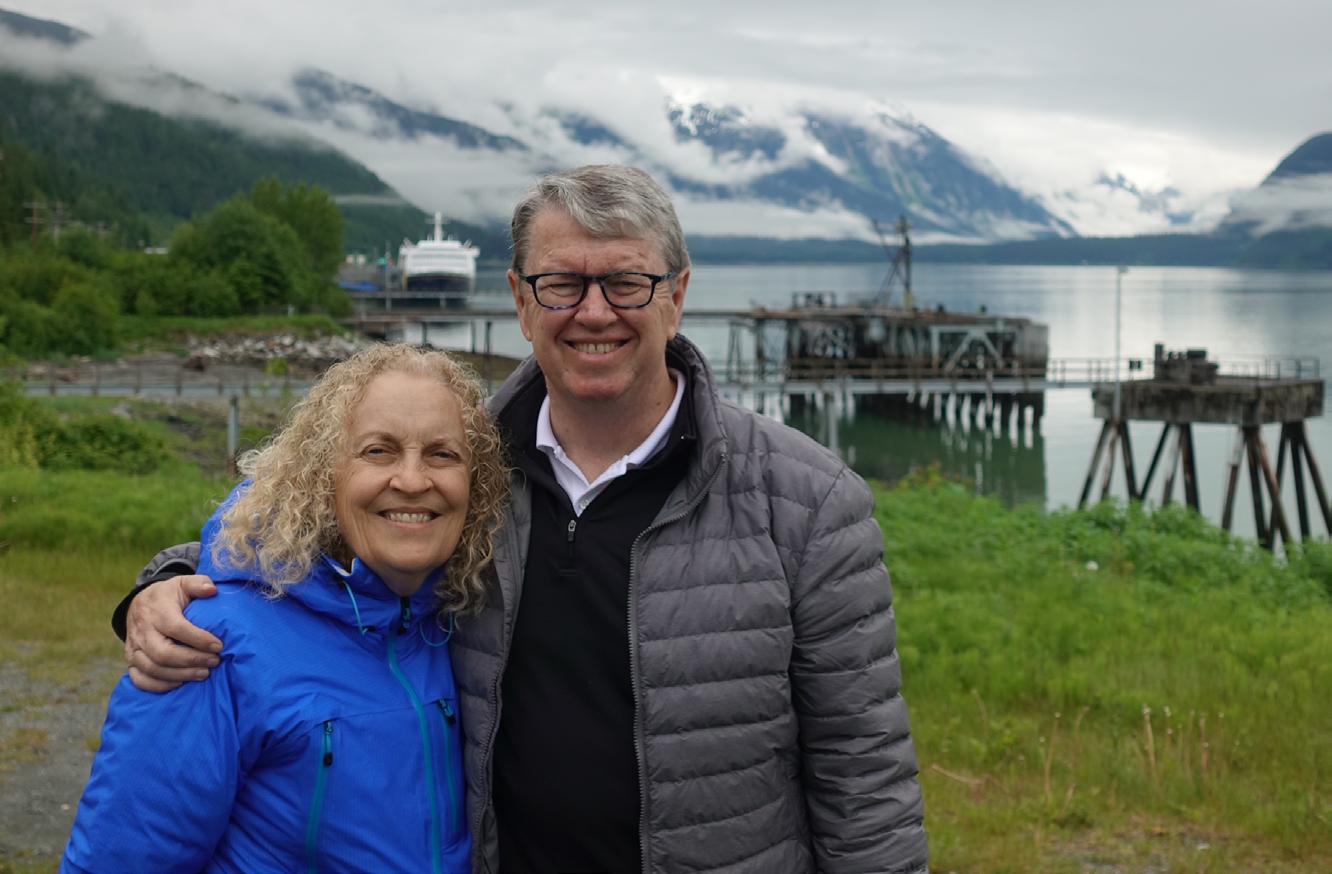
“The Honors experience broadened my education beyond the focus on my major in chemistry. I had one-on-one classes with distinguished professors studying foundational documents of modern political thought, self-actualization, the novels of Bernard Malamud, and the architecture of Ralph Adams Cram. These experiences laid the foundation for my lifelong passion for learning and the arts.”
David Bronson
“I would tell an incoming student that Honors is an incredible opportunity to find their own passion and practice turning that into a project or product to share with the world. Creativity and out-of-the-box thinking are truly valued in this community, and at this point in their lives, perhaps more than any other, they have the opportunity to see how far their passion can take them.”
Caitlin Howell

The Ethics of Self-Care was the theme of the 2022 John M. Rezendes Ethics Essay Competition.
“The idea of ‘self-care’ seems wrought with ethical and moral challenges,” said Dr. Jennie Woodard, one of the competition’s judges, and “near impossible for those in abusive situations, single parents, or primary caregivers for family who are sick.”
Dr. Vaishali Mamgain, the Director of the Bertha C. Ball Center for Compassion at the University of Southern Maine and the 2022 Rezendes Visiting Scholar in Ethics, addressed these challenges in her lecture Self-Care and Radical Communion: Walking Each Other Home. Mamgain is nationally known for her work in contemplative pedagogy.


Thursday, April 14

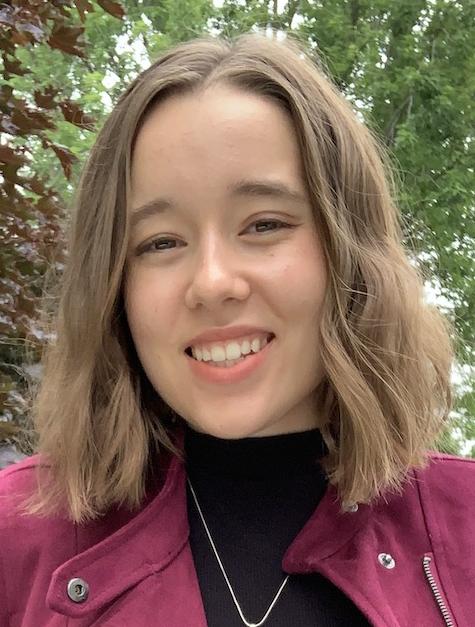
When We Cannot Care for Ourselves: “Ethics, Interdependence, and the Moral Danger of the Self Care Message” Elaine Thomas ’23, First Place, John M. Rezendez Essay Competition
Excerpt: “We have an ethical obligation to shift the focus away from self-care and humbly acknowledge our dependencies on all sources and forms of care. Instead of framing our interdependence as a weakness or a shameful reality that we must begrudgingly accept, we can make it our greatest asset.”
Finalists: Anna Lane, “A Kantian Argument for Universal Healthcare.” Iris May-Fleming, “The Effects of an Imposed Binary on Self-Care and a Proposed Alternative Model Using Care Ethics.”

Associate Dean Melissa Ladenheim and former Honors
Associate Katie Tims spoke with Dean Weinauer about the value of honors education, helping students find their passions, and Honors as a transformational educational experience. The interview has been edited for length and clarity.
Ladenheim: Tell us a little bit about yourself and your background.
Weinauer: I grew up in Minnesota and went to college as an honors student at the University of Wisconsin, where I started as a pre-med major. But in college, I realized that I just didn’t have passion for my science classes. I was good at them, but I didn’t love them. I did have passion for my English classes, but I was unwilling to change my path so drastically at first. I thought about a journalism major; I thought about a biology major—but in the end, I decided to embrace my passions and become an English major. This period of uncertainty has made me really sympathetic to and encouraging of students who come to college thinking they know what they want to do but then discover that they want to do something else. I think college should be a time for exploration and self-discovery. I learned things in all
the classes that I was taking as I was trying to figure out what I wanted to be and do. Those classes gave me the kind of broadminded education that we hope to provide Honors students. I wrote my undergraduate honors thesis on Toni Morrison, which was also a fairly audacious thing for a suburban white girl to do—it was humbling and I learned a lot. Then I went to graduate school at Indiana University and got my master’s and my Ph.D. in English with a minor in women’s studies. I landed at the University of Southern Mississippi [and] stayed there 27 years— the last seven as the dean of the Honors College. This was the job I came to discover was a sweet spot for me—it fulfills my passions!
Ladenheim: I want to follow up on the difference between being good at something and being passionate.
Weinauer: I think we really undervalue passion in an academic context. Increasingly, a university or college education has come to be associated with career pathways. This is understandable; college is expensive, and if students are investing in a four-year education, we want it to be meaningful. But sometimes, we forget how important passion is as part of that equation. We do better and we are more creative in our approaches when we’re passionate about things. When I read a passage from Morrison or Melville—both writers I love—it lights me on fire. I want
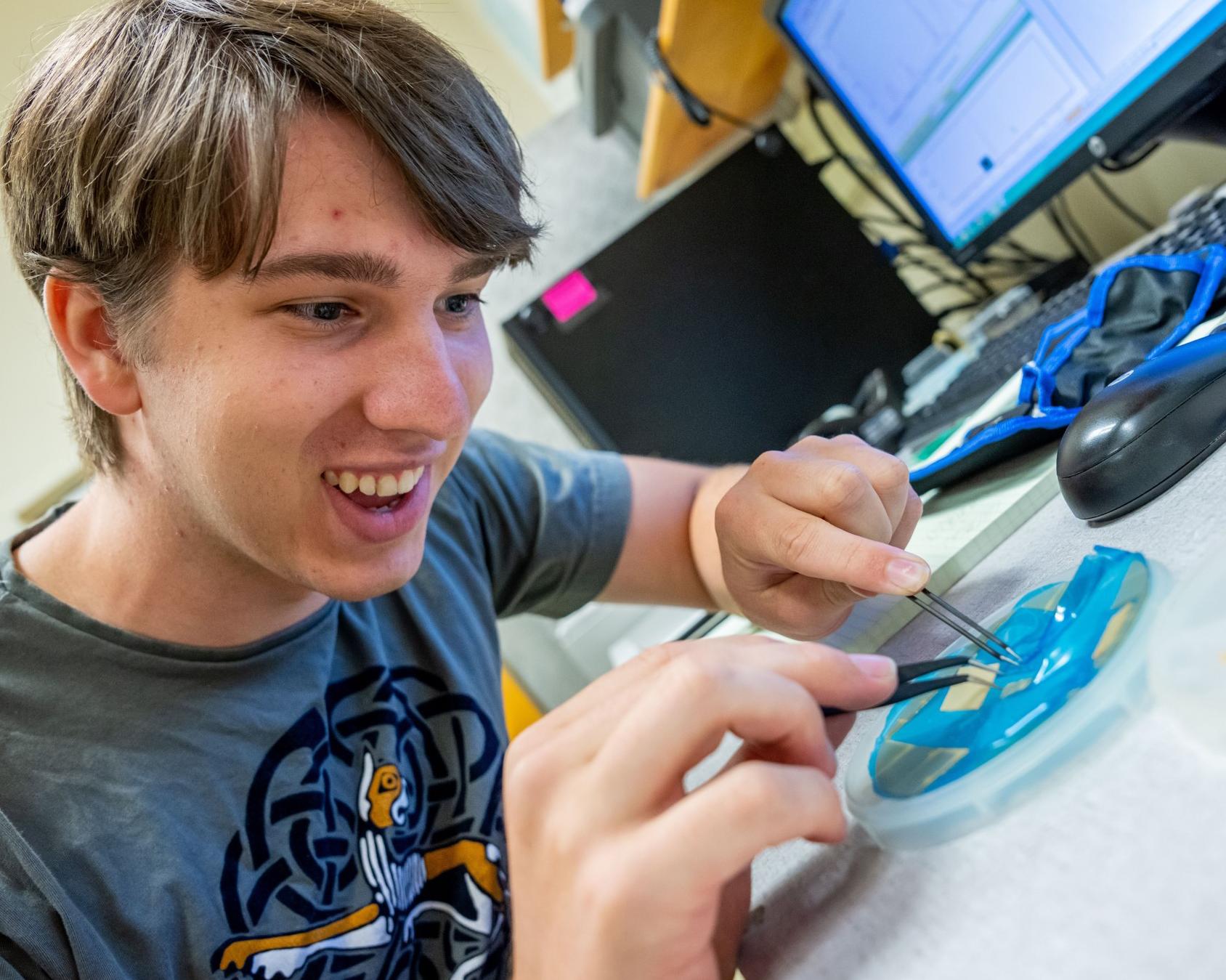
students to feel that when they are here with us. Helping Honors students find their pathways should also involve helping them find their passions. Passion will drive them through all four years, because at the heart of passion, for me, is a kind of fierce curiosity and desire for more.
Tims: We’ve heard you say that Honors is the “best of both worlds.” Talk a bit more about that.
Weinauer: I’ve been part of and committed to the public Honors experience for a long time because I believe that an Honors education can be truly transformative. An
Honors education should help students become curious and passionate learners, to ask good questions, and to develop the toolkit that they need to answer those questions. Paulo Freire’s Pedagogy of the Oppressed offers two concepts of learning: the banking concept and the problem-posing concept. The problem posers are the ones who can truly transform the world around us and make change. That’s one of the key values for me of Honors education—the transformative impact of problem-posing modes of learning. When we become truly critically engaged in our educational experience, we will ourselves be transformed, and we will have the opportunity to change the world around us.
The “best of both worlds” can be understood in a couple of different ways. First, we have small classes where students are co-learners with their faculty members, but these classes are taking place at a major public research university—an R1 university—so you have this amazing synergy with all the resources that a comprehensive research university provides. Students get both modes of learning.
Ladenheim: Talk about your vision and hopes for Honors for the next decade.
Weinauer: I hope that as we continue these vision conversations and as we craft a new guiding mission for the Honors College, we remember always that we should be thinking about a transformative educational experience that is available to all students who are driven and curious and who want more. Students should always be at the center of what we do and how we evolve. I also want the Honors College to be a place for innovative practice—a hub for really exciting thinking about what can happen in and out of the classroom in a student-centered environment.
Tims: What is your must-read book for any college student?
Weinauer: I can’t really identify only one. I just want people to read. As a society, we have a really hard time seeing things from other points of view, listening empathetically to others, and understanding how they might approach a question or an issue or a problem. Reading is great for helping us cultivate empathy.
Tims: What have been some of your most memorable moments since arriving?
Weinauer: Students, staff, faculty, donors, alumni, the people I meet in the community—the kindness I have received has just been astounding. And it is so beautiful here!
Ladenheim And the zip line?
Weinauer: Oh, that was a great moment! I did not do very well on the challenge course, but that’s okay. That was a favorite moment as well, because I taught students that it’s okay to not be good at something. I did not have passion for the challenge course! But I loved the zip line! I have a lot of passion about that—I would do that 100 times over.



Ina cherished tradition, the incoming Honors College cohort reads a common text known as the Honors Read, which is chosen by third-year students in a dedicated tutorial. The selection process reflects core values in Honors of intellectual engagement, collaboration, and perspective-taking. Likewise, the shared experience of the Honors Read fosters community among the first-year students as it sparks meaningful conversations and self-reflection.
Becoming Nicole: The Transformation of an American Family, by Amy Ellis Nutt, was the 2021 Honors Read. Explaining their choice, the tutorial students stated they saw “themes and ideas that appear throughout the Honors curriculum,” including “what it means to be human” and “what it means to be an individual and to be true to oneself.” One incoming student noted its impact on them: “I could not set it down [as] I myself am transgender… there were certain parts that hit very close to home in my heart.”
Wayne Maines, whose journey to understanding, acceptance, and advocacy is at the heart of Becoming Nicole, spoke to Honors students about his path to acceptance and his transformation into a passionate advocate for his daughter and other transgender individuals. Maines has conducted LGBTQ+ training throughout the United States and beyond.

Inever expected to call myself a fine artist but looking back I think it was inevitable. I am someone who constantly wants to learn about anything and everything. Even if I don’t apply the knowledge I acquire, I just want to understand it. My interests range from natural science to social issues to literature. This made trying to narrow down my focus when applying to college very difficult. I bounced ideas around constantly, but nothing ever felt completely right. I finally settled on wanting to be a graphic designer and declared a dual degree in Marketing and Studio Art. However, this went out the window as soon as I took my first printmaking class. While I still studied marketing and graphic design, my true passion has always been printmaking.
Printmaking allows me to explore all of my interests. I am not thinking about just one topic; I am looking at the intersections of many different viewpoints. I am able to bridge gaps between science and art, address current social issues, and share very personal moments. Becoming an artist allows me to discover my voice and my place in the world.
My woodcut series on bristlecone pines allowed me to research the importance of these trees to dendrochronology—the use of tree rings to study climate change. Since bristlecone pine trees can live to almost 5,000 years old, they are vital to studying patterns in climate change over millennia. I began to work at the intersections of art and science, exploring how they can each enhance our understanding of the other. Through this series, I hope to create a larger community of artists and scientists who can work together towards fighting climate change.
Delaney is currently pursuing an MFA at Boston University.
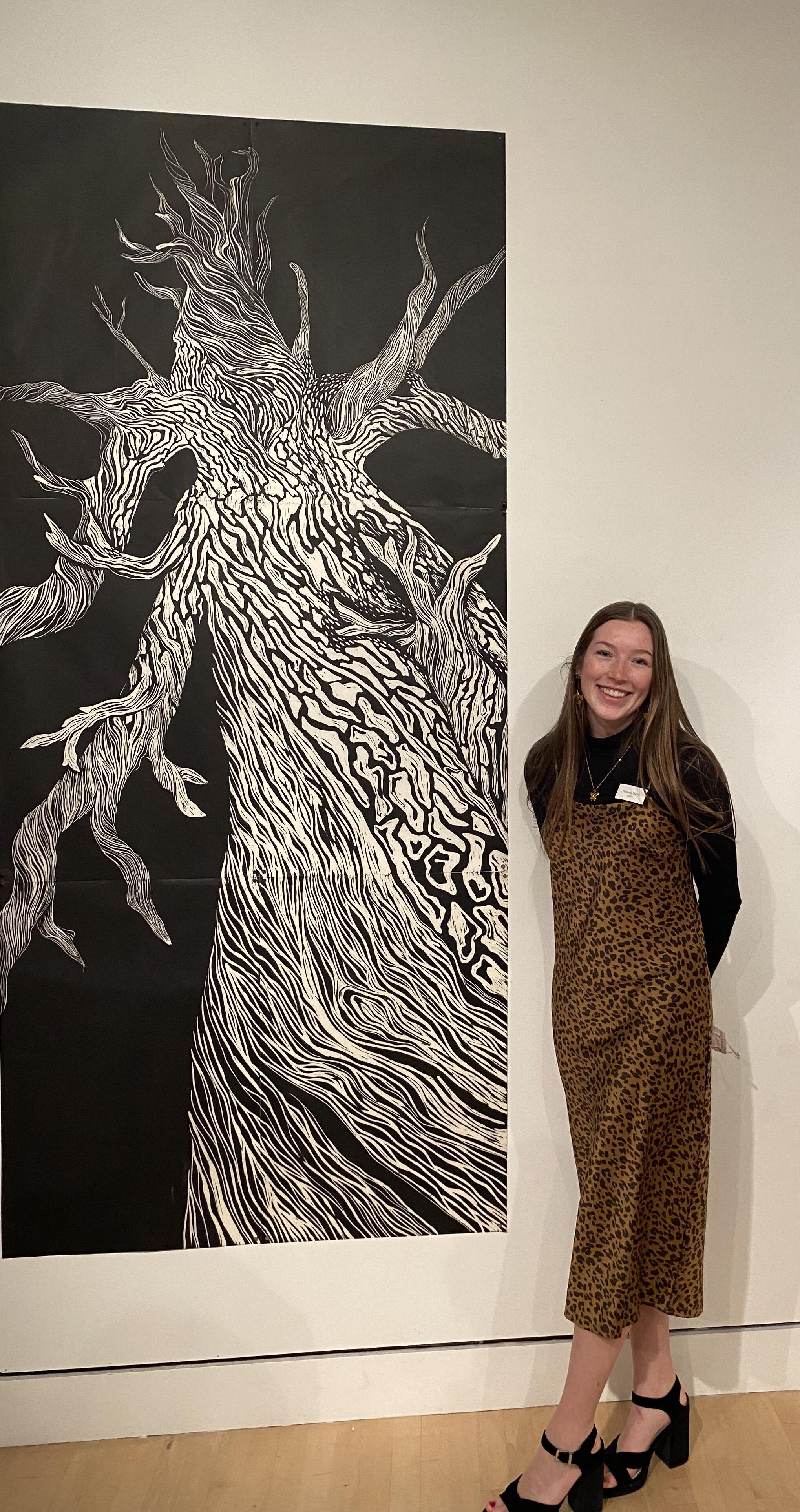
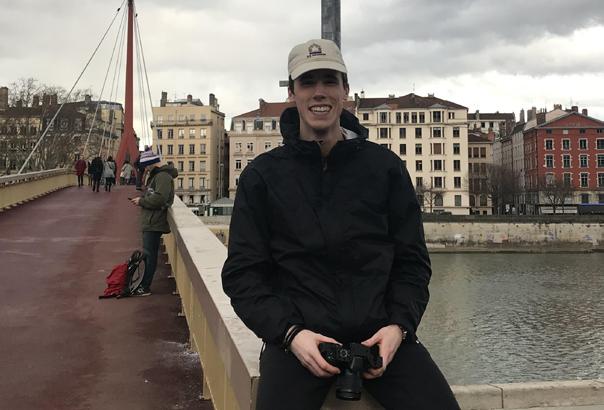
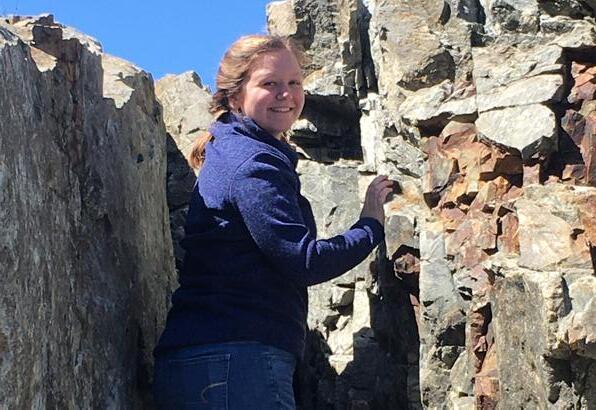
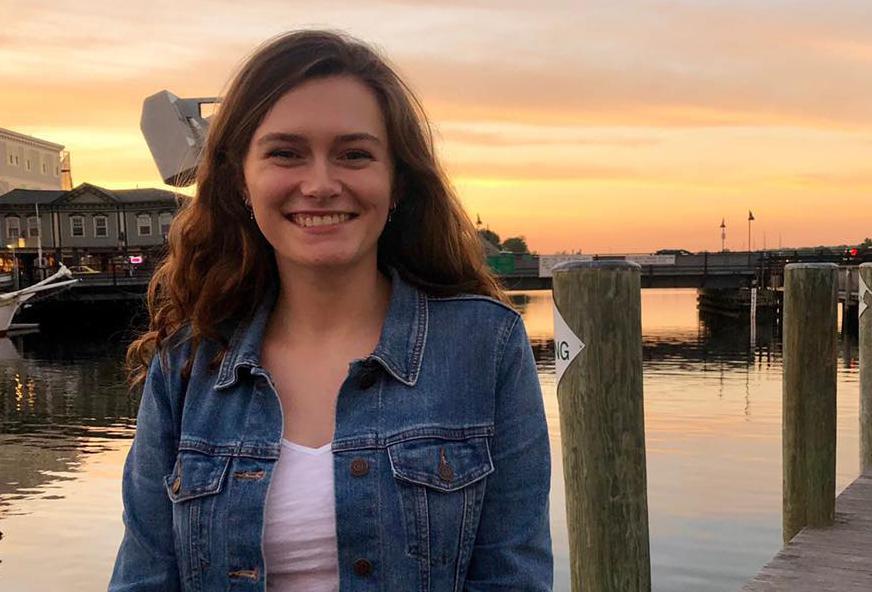
Major: Marketing, minor in New Media
Hometown: Phippsburg, ME
High School: Cheverus High School
Thesis: Brand Equity in the Maine Craft Beer Industry
Advisor: Dmitri Markovitch
Thesis Description: Maine has the second most craft breweries per capita in the United States. The craft beer scene in the state is booming and well respected nationwide. My thesis seeks to explore how unique branding techniques differentiate breweries, and in turn, create brand equity. Brewery and consumer perspectives are both explored, using David Aaker’s 1996 model for brand equity as a guide.
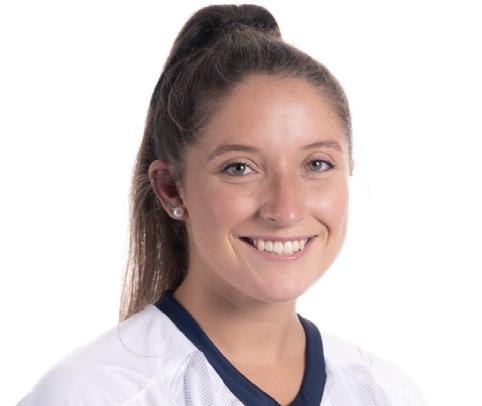
Major: Communication Sciences & Disorders, minor in Psychology
Hometown: Salem, CT
High School: East Lyme High School
Thesis: The Long-Term Behavioral Effects of Concussions and Post-Concussion Syndrome
Advisor: Ryan Taylor
Thesis Description: I am studying the behavioral effects of concussions on Division I student athletes in high-contact sports. I am using the PROMIS-29 survey, a self-report questionnaire, to discover if student-athletes who have had one or more concussions have experienced any behavioral changes (mood, fatigue, social habits, etc.).
Major: Microbiology
Hometown: Concord, NH
High School: Concord High School
Thesis: Understanding the Role of Prophage Encoded Polymorphic Toxins in Mycobacterial Superinfection Immunity and Drug Resistance
Advisor: Sally Molloy
Thesis Description: Prophage are viruses that integrate into bacterial genomes and are believed to increase pathogenicity of bacteria. The Molloy lab has shown that the cluster R prophage, McProf, increases bacterial resistance. To better understand the role of prophage, we identified and characterized 25 novel cluster R genomes in sequenced clinical M. abscessus isolates.
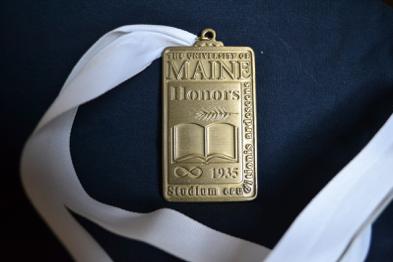
Major: Mechanical Engineering Technology
Hometown: Andover, MA
High School: Andover High School
Thesis: Effects of Process Parameters and Meso-structures on Dissipative Properties of Additively Manufactured Structures
Advisor: Brett Ellis
Thesis Description: My thesis explores the relationship between process parameters and meso structure on the amounts of energy a 3D printed object can absorb. The thesis looks at changing the shapes of the structures as well as printer settings such as speed, temperature, and wall thickness to increase energy absorption capabilities.
Major: Marine Science
Hometown: East Lyme, CT
High School: Marine Science Magnet High School
Thesis: Genetic Analysis of Yellowtail (Seriola lalandi) for Aquaculture in Maine
Advisors: Nishad Jayasundara and Kristina Cammen
Thesis Description: The University of Maine’s Center for Cooperative Aquaculture Research holds a stock of yellowtail fish whose genetic identity is unknown. In this study, three fin clips and one muscle sample were taken from three individuals of yellowtail for DNA analysis. This analysis found that there were at least two genetically distinct stocks in the population at CCAR.

Majors: Chemical Engineering; Chemistry
Hometown: Cumberland Center, ME
High School: Greely High School
Thesis: Modeling the Filling of Methane in Heterogeneous Pore Networks
Advisor: Brian Frederick and François Amar
Thesis Description: Using the Metropolis Monte Carlo method of molecular simulation, data was generated and analyzed to understand the filling of the microporous network of catalyst support SBA-15. Work was also done to understand the reproducibility of the simulations and to begin building a basis for future molecular dynamics simulations.

Major: Marine Science
Hometown: Oxford, MA
High School: Oxford High School
Thesis: Bioaccumulation and Behavioral Impacts of Nanoplastics with a Contaminant of Emerging Concern in Developing Zebrafish Larvae (Danio rerio)
Advisor: Nishad Jayasundara
Thesis Description: In this thesis, zebrafish (Danio rerio) were used as a model to observe the toxicity of nanoplastics and how their presence may influence the toxicity of a common contaminant: perfluorooctane sulfonate (PFOS). We investigated how a coexposure of nanoplastics and PFOS may affect the swimming behavior of zebrafish larvae.
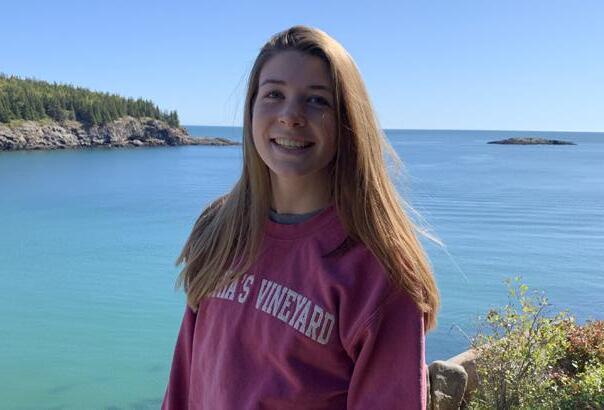
Major: Marine Science
Hometown: Medford, MA
High School: Medford High School
Thesis: Assessment of Potential Measures at Admit of Harbor Seal Pup Rehabilitation Success
Advisor: Kristina Cammen
Thesis Description: The objective of my thesis was to determine whether the probability of rehabilitation success can be determined at admit, which rehabilitation organizations can consider when resources are limited. The main findings of my study were that dependent pups and those that strand earlier in the year were found to be the most likely to have a successful rehabilitation.
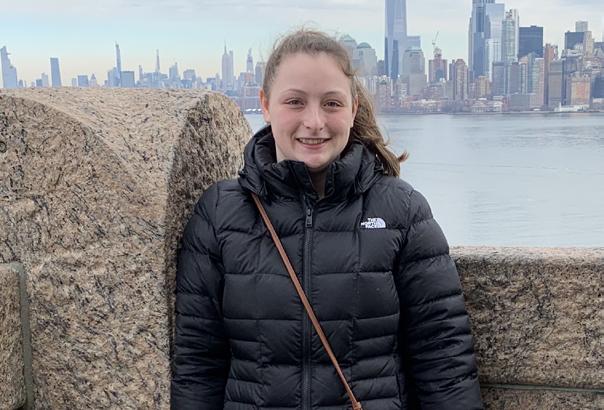
Major: Biochemistry, minor in Microbiology
Hometown: Eddington, ME
High School: John Bapst Memorial High School
Thesis: Discovering Virulence Factors of Candida albicans that Affect Host Immune Responses
Advisor: Robert Wheeler
Thesis Description: Candida albicans is an opportunistic pathogen and immunocompromised individuals are at risk for life-threatening infections. Understanding the mechanisms as to how this pathogen causes disease may help develop strategies to treat these infections. We identified new virulence genes that regulate the innate immune response.
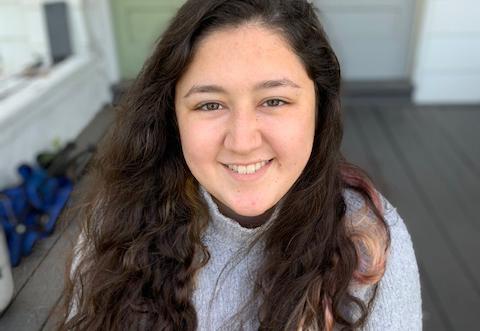
Major: History, minor in Environmental Horticulture
Hometown: North Kingstown, RI
High School: North Kingstown Senior High School
Thesis: Local Involvement, Memory, and Denial: The Complexities of the Holocaust in Lithuania
Advisor: Anne Knowles
Thesis Description: This thesis provides analysis of local involvement of non-Jewish Lithuanians in the Holocaust in Lithuania, its preconditions, and the memory of that involvement in the country since Lithuania’s independence from the Soviet Union in 1990. This difficult history has created a complicated relationship between current Lithuanians and their past.

Major: Food Science & Human Nutrition
Hometown: Fort Kent, ME
High School: Fort Kent Community High School
Thesis: Identifying Cofactors Contributing to Food Insecurity in Elderly Maine Residents Living at Home
Advisor: Mary Ellen Camire
Thesis Description: Maine’s older adult population is anticipated to rapidly increase over the next decade due to the Baby Boomer generation entering the 65+ age category. This research provides a glimpse into the current food security status of Maine’s older adults and examines how the COVID-19 pandemic has affected access to nutritious food, as well as how programs are meeting the current needs of the population.
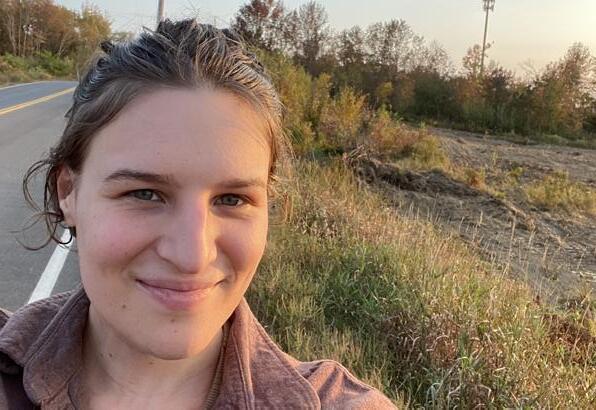
Major: Zoology, minor in Professional Writing
Hometown: China, ME
High School: Erskine Academy
Thesis: Forward Genomics of a Complex Trait: Mammalian Basal Metabolic Rate
Advisors: Danielle Levesque and Diane Genereux
Thesis Description: I extended an existing Forward Genomics pipeline, which was designed to find genomic correlates with binary traits, and applied it to a continuous trait, mammalian basal metabolic rate. The results likely included some basal metabolic rate-related genes, and future lab studies could make it easier to determine which genes are truly related to basal metabolic rate and what effect they have on it.

Majors: Sociology; Women, Gender, & Sexuality Studies, minors in Political Science and Psychology
Hometown: Southington, CT
High School: Southington High School
Thesis: Identifying the Advocate in ME; An Undergraduate Autoethnography Exploring the Personal Identity of Activist versus Advocate
Advisor: Jennie Woodard
Thesis Description: My thesis explores the social definition of “activists” and “advocates” through an autoethnographic lens of personal growth and identity formation. I reflect on my undergraduate career in order to understand my identity development as a queer advocate. I present a “Social Movement Identification” typology that allows individuals to identify themselves within a social movement.

Major: Marine Science
Hometown: Pittsburgh, PA
High School: North Hills High School
Thesis: Compilation and Review of Sea Turtle Rehabilitation Protocols and Career Guidance from Conservation Professionals in the Eastern United States
Advisor: Sara Lindsay
Thesis Description: The goal of my thesis was to collect quantitative and qualitative data regarding sea turtle rehabilitation protocols in order to determine which rehabilitation methods were most effective and most efficient. I also asked rehabilitation professionals to reflect on their own careers in order to give advice to undergraduate students who wish to pursue a career in conservation and rehabilitation.

Major: New Media, minor in Graphic Design
Hometown: Contoocook, NH
High School: Hopkinton High School
Thesis: Rift: A Mobile Application for UMaine
Advisors: Jon Ippolito and Samantha Jones
Thesis Description: Rift is a mobile application designed to empower students by giving them a platform to discuss the issues they find at UMaine, and come together to create events and solve such issues. In a social media type fashion, users can post, interact, and view where the posts are happening on campus on the live map.

Major: Biochemistry
Hometown: Ashland, ME
High School: Ashland District School
Thesis: Yeast Actin Cytoskeleton Regulation by Regulators of G-proteins Signaling
Advisor: Joshua Kelley
Thesis Description: Studied the effect of mutations to regulatory machinery on the localization and efficiency of actin in yeast while undergoing the mating response.

Major: Zoology, minor in Microbiology
Hometown: Reading, MA
High School: Reading Memorial High School
Thesis: Ecological Niche Modeling of Lyme Disease Risk in Maine Based on Human Case Data
Advisor: Allison Gardner
Thesis Description: Lyme disease poses a significant concern to the state of Maine, as both the number and geographic distribution of cases across the state have been steadily increasing over the past two decades. Using tick-borne disease human case data from the Maine CDC and ArcGIS software, I was able to map areas of high-risk for Lyme disease cases in Maine.
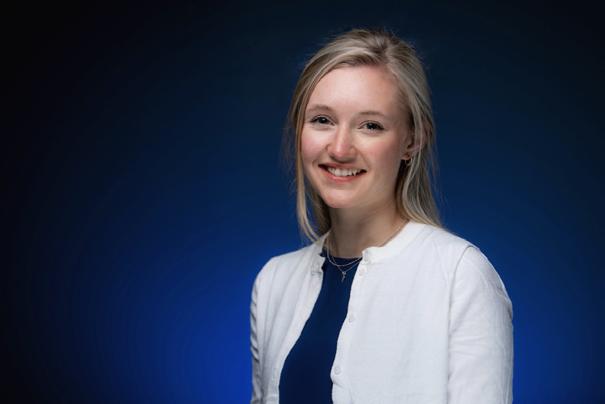
Major: Political Science, minors in French, Legal Studies, and International Affairs
Hometown: Fayette, ME
High School: Maranacook Community High School
Thesis: Voting At UMaine: An Empirical Study of Student Turnout Trends and Motivations
Advisor: Robert Glover
Thesis Description: This thesis examines why students at UMaine do or do not vote. Based on both rational choice and social identity theory, we tested several factors related to students’ self-reported likelihood to vote through a mixed-methods approach. We measured the effects of political efficacy and perceptions of the campus political environment to access various attitudinal barriers related to voter turnout.

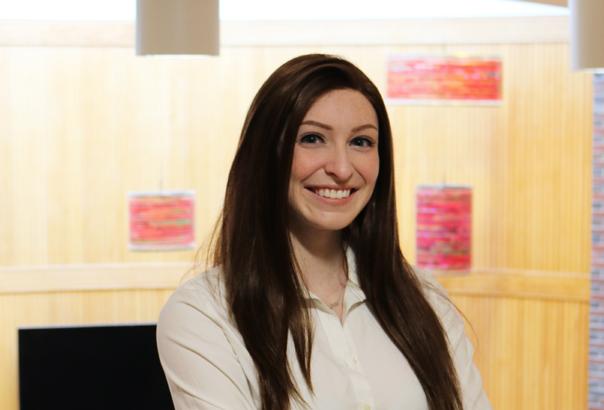

Major: Microbiology
Hometown: Milford, CT
High School: Jonathan Law High School
Thesis: The Role of the Accessory Domain in CpsA Function and Capsule Production in Group B Streptococcus
Advisor: Melody Neely
Thesis Description: Group B Streptococcus is the leading cause of neonatal meningitis. Capsule is the most important virulence factor of GBS infection, and its expression is mediated by the CpsA protein. The goal of this study is to determine the role of the accessory domain in CpsA function and capsule production in order to understand the mechanisms of dissemination used by GBS to survive in tissue environments.

Major: Animal & Veterinary Sciences, minor in Equine Studies
Hometown: Peru, ME
High School: Dirigo High School
Thesis: Action Plan in Response to Future Pandemics
Advisor: Anne Lichtenwalner
Thesis Description: My thesis analyzes how COVID-19 has affected small-animal veterinary practices during 2020. Understanding how COVID has impacted these practices in Maine will help to create a potential bestpractices plan that will serve as guidelines and recommendations for practitioners and facilities to implement if another pandemic outbreak were to occur so they can remain open and operate safely.
Major: Marketing, minor in Graphic Design
Hometown: Lewiston, ME
High School: Lewiston High School
Thesis: The Importance of a Checkmark: An Investigation into the Perceptions of Social Media Verification and Its Effects on Consumer Trust
Advisor: Stefano Tijerina
Thesis Description: Social media verification, denoted by a checkmark badge visible on one’s profile, is ostensibly a way of confirming one’s identity, yet only the most notable are verified. This research investigates the perception of verification in the context of paid partnerships with social media influencers, a topic relatively absent from the literature despite the billion-dollar influencer marketing industry.

Major: Political Science, minors in Legal Studies and Ethics & Political Philosophy
Hometown: Oswego, IL
High School: Batavia High School
Thesis: The Tension Between Morality and Philosophy in the Platonic Dialogues
Advisor: Robert Ballingall
Thesis Description: My Honors thesis examines the perennial tension between self-interest and altruism as it figures in the political thought of Plato. Using hermeneutic methods developed by Schliermacher, Friedlander, and Strauss, this Honors thesis closely reads four dialogues to uncover the precise nature of Plato’s analysis.
Majors: Psychology; Child Development & Family Relations
Hometown: Ellington, CT
High School: Ellington High School
Thesis: Social Media Use and Empathy in Late Adolescents
Advisor: Cynthia Erdley
Thesis Description: The purpose of this study was to investigate the relationship between social media use and empathy in late adolescents. Results of this study suggested that social media use is partially associated with feelings of personal distress in interpersonal conflict (an aspect of empathetic concern). These feelings, in turn, may promote empathic behavior in late adolescents.

Major: Biomedical Engineering
Hometown: Topsham, ME
High School: Scarborough High Schooll
Thesis: Conductive AgNw/Tempo CNF Thin Films
Advisors: Michael Mason
Thesis Description: Cellulose nanofibrils(CNF) are an environmentally friendly wood-derivative. Silver nanowires are a micron-scale metallic nanoparticle with high conductivity and sensor response. A simple method of using CNF with silver nanowires to create thin, conductive films for use in sensor applications was explored and confirmed as a basis for further applications in humiditysensing and chemical detection.
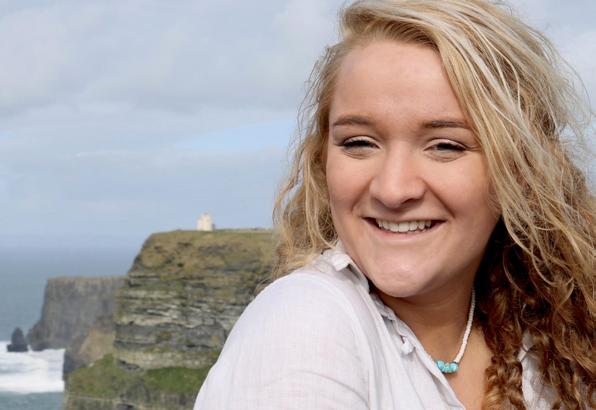
Majors: Communication; Economics
Hometown: Scarborough, ME
High School: Scarborough High School
Thesis: “But you have to have been there to know what we are talking about”: An Examination of the Rhetorical Environments of Cults and Other Extremist Groups and How They Lead to Violence
Advisor: Nathan Stormer
Thesis Description: My thesis looks at Heaven’s Gate and Jonestown, cults which ended in mass suicide, as examples of violent groups, and then uses this analysis to examine the potential for future violence from the farright group, QAnon. I argue that rather than “charismatic leaders” as an explanation for the suicides, rhetorical ecologies were created that made it almost impossible for members to do anything else.

Major: Zoology
Hometown: Waterville, ME
High School: Winslow High School
Thesis: Critique of Experimental Procedures
Targeting Retinitis Pigmentosa
Advisors: Leonard Kass
Thesis Description: Retinitis Pigmentosa (RP) is a group of hereditary genetic disorders, all causing degradation of the retina through loss of rod photoreceptor cells, ultimately causing loss of vision and in many cases complete blindness. In this thesis, I describe the genetic causes and effects of retinitis pigmentosa, followed by an analysis of current experimental treatments.

Major: Microbiology
Hometown: Stonington, CT
High School: La Salle Academy
Thesis: Defining the Role of G-Protein Receptor Kinase 2 in JC Polyomavirus Entry
Advisor: Melissa Maginnis
Thesis Description: McProf is a naturally occurring prophage that expresses high levels of genes in a secreted polymorphic toxin system. This project aims to determine if the McProf polymorphic toxin system is responsible for altered whiB7 expression and antibiotic resistance when the bacteria are exposed to stress.

Major: International Affairs, minors in Legal Studies, Spanish, and Sociology
Hometown: Falmouth, ME
High School: Falmouth High School
Thesis: Political Polarization and the Dissemination of Misinformation: The United States Pandemic Response as a Cautionary Tale
Advisor: Richard Powell
Thesis Description: This thesis discusses the failings of the United States response to the COVID-19 pandemic, and how it has been shaped by the nation’s intense political polarization and the widespread dissemination of misinformation. Ultimately, I conclude that the United States pandemic response should stand as a cautionary tale to any developed nation looking to develop effective policy regarding global disease.

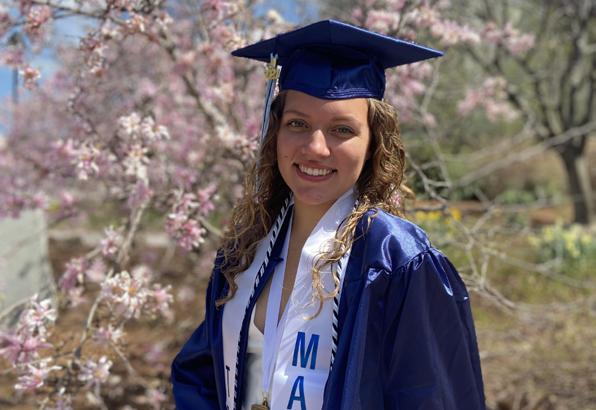
Major: Zoology
Hometown: Parlin, NJ
High School: Sayreville War Memorial High School
Thesis: Predicting Range Shifts for the Virginia Opossum in Maine
Advisor: Danielle Levesque
Thesis Description: Climate change is causing changes in species distribution and movement. The Virginia opossum population is continuing to expand northward due to urbanization and the warming temperatures from climate change. Maine’s climate is becoming increasingly favorable for opossum establishment and the species is predicted to continue to move northward throughout the state.
Major: Communication, minor in Music
Hometown: Warren, ME
High School: Medomak Valley High School
Thesis: "As We Are" Creating, Directing, and Producing a Jukebox Musical During COVID-19
Advisors: Christopher White and Dominick Varney
Thesis Description: The ups and downs of creating and directing a jukebox musical during COVID-19.
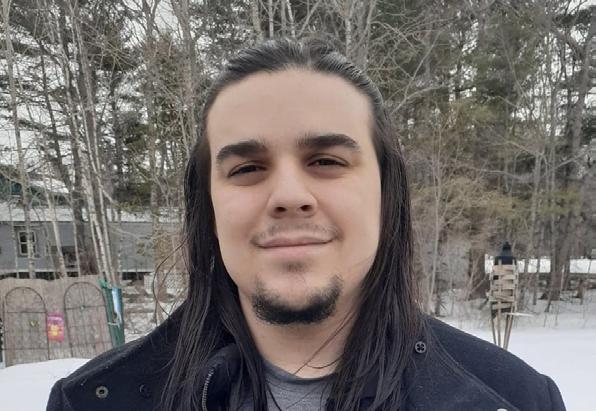
Joshua Hamilton
Major: Biomedical Engineering, minor in Nanotechnology
Hometown: Alton, ME
High School: Old Town High School
Thesis: A Method for Orientation of Cellulose
Nano Fibers for Addition of Biological Nanoparticles and Tissue Integration
Advisor: Karissa Tilbury
Thesis Description: Currently, resorbable implants for bone fixation are more expensive than titanium equivalents. Cellulose nanofibers (CNF) have the properties needed to fit into this high-force environment while remaining cheap and resorbable by the body. My thesis focused on an up-scalable approach to orient CNF films while adding biological nanoparticles, thereby forming the foundation for these implants.
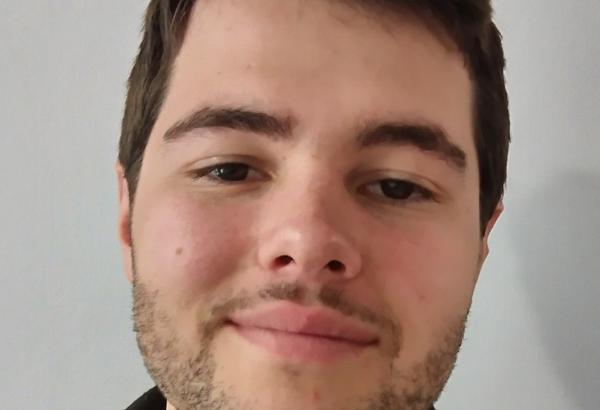
Andrew Hutchins
Major: Management, minor in Biology
Hometown: Alna, ME
High School: Lincoln Academy
Thesis: The New Age of Aerospace: How Can Maine Leverage Its Assets and Engage in New Space?
Advisor: Stefano Tijerina
Thesis Description: This study seeks to discern Maine’s ability to attain competitive advantage in the emerging new space economy, and in addition suggest strategic measures that Maine’s public and private leaders can employ to maximize the economic impact of Maine’s emerging new space industry & proposed SpacePort Complex.

Niklas Hase
Major: Biochemistry
Hometown: Buxton, ME
High School: Cheverus High School
Thesis: : The Anillin-Like Protein Boi1 and Boi2 Regulate Dose-Dependent Septin Deposition During The Yeast Pheromone Response
Advisor: Josh Kelley
Thesis Description: To better understand how GPCR signaling influences septin deposition during polar growth processes such as cancer metastasis, we elucidated the mechanism of pheromone dose-dependent septin polymerization during yeast mating. We found that the proteins Boi1 and Boi2 are a critical link between G-beta/gamma activity and proper septin placement when cells are exposed to high pheromone concentrations.
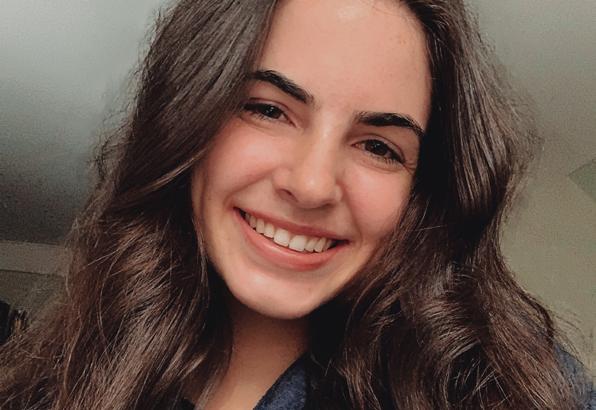
Kendra Huth
Major: Animal & Veterinary Sciences
Hometown: Beverly, MA
High School: Beverly High School
Thesis: : Human Facial Recognition in Holstein Heifers
Advisor: David Marcinkowski
Thesis Description: For my thesis, I hypothesized that Holstein heifers are capable of differentiating between humans solely based on facial characteristics. Six Holstein heifers from the University of Maine were trained and tested for 4 weeks using 4 photos (1 blank, 1 object, and 2 human faces). A fifth week of testing took place 6 weeks later to test their long-term memory.
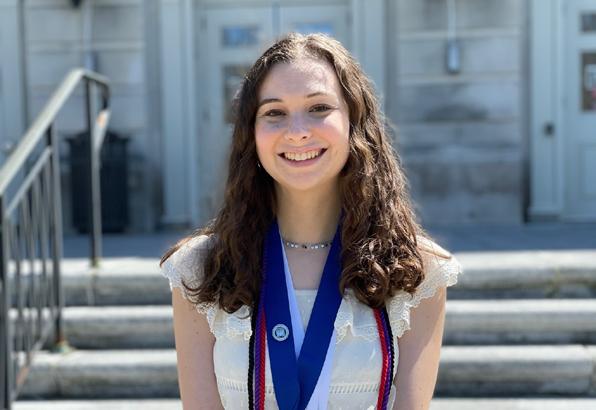
Major: English; Journalism
Hometown: Washington, ME
High School: Medomak Valley High School
Thesis: Black Lives: Not a Single Story
Advisors: Margo Lukens and Margaret Killinger
Thesis Description: This thesis explores depictions of Black lives in America through consideration of journalism, as well as novels and plays by 20th- and 21st-century African American writers. Through examining Black love and joy, this thesis demonstrates how these novels and plays challenge the reader to recognize that single stories of Black suffering render too narrowly the fullness of Black human experience.
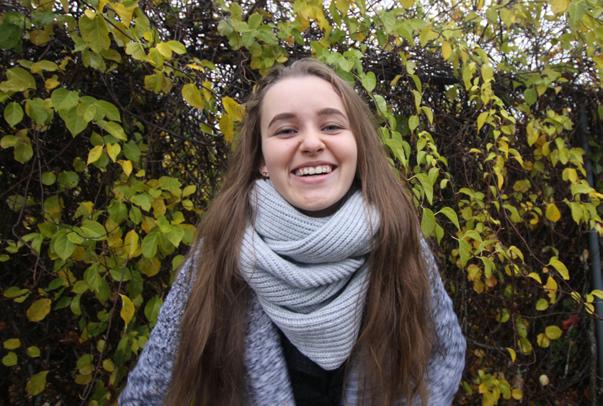
Major: International Affairs, minors in Spanish and Legal Studies
Hometown: Kyiv, Ukraine
High School: Thornton Academy
Thesis: The One-Eyed Man And The Wicked Boar
Advisor: Kristin Vekasi
Thesis Description: The thesis examines potential territorial authoritarian threats to the Western world, while relying on the past Eastern European history as evidence. While questioning if military aid is the most successful in deterring authoritarian expansion, it also creates a folklore narrative to urge the readers to see past the “democratic” facade of the “newly rebranded” authoritarian regime (i.e. Russia).
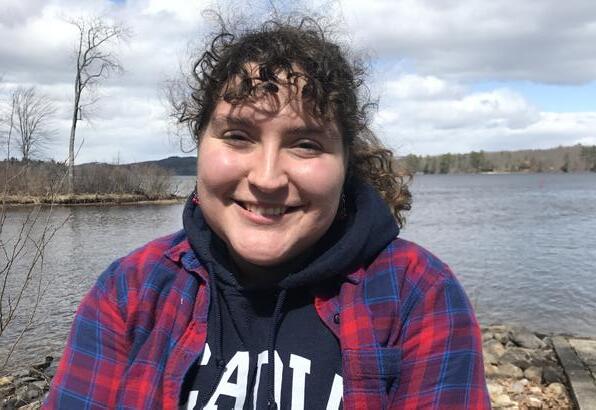
Emily Jackson
Major: Biology, minor in Earth Sciences
Hometown: Casco, ME
High School: Oxford Hills Comprehensive High School
Thesis: Qualities of Successful Invasions: Examples from the Great American Biotic Interchange
Advisor: Brian McGill
Thesis Description: I look at the life history traits of mammals that participated in the Great American Biotic Interchange in order to determine how organisms today might react to large-scale climate induced habitat shifts.

Major: Music Education
Hometown: Kennebunk, ME
High School: New Life Christian School
Thesis: Music Can Foster Communication Skills in Middle School Students
Advisors: Laura Artesani
Thesis Description: My thesis focused on the study of how music can be beneficial to developing our youths’ social skills.
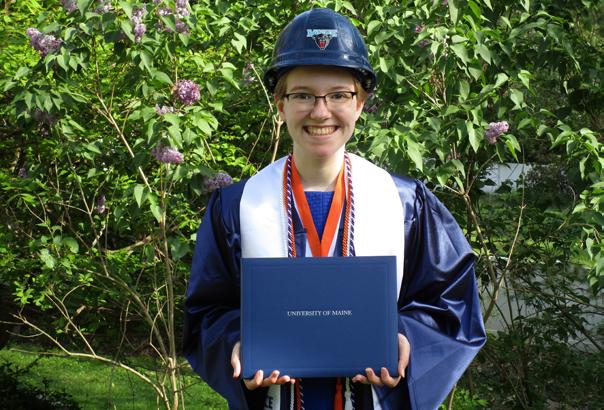
Joanna Keaton
Major: Civil & Environmental Engineering, minor in Mathematics
Hometown: North Reading, MA
High School: North Reading High School
Thesis: Damage Tolerance of Carbon Fiber
Woven Composites Based on Fatigue Life After Impact
Advisor: Roberto Lopez-Anido
Thesis Description: This thesis analyzes the compression fatigue responses of a 2D laminate and a 3D woven carbon fiber reinforced polymer manufactured by Albany Engineered Composites, Inc., exposed to low energy face impacts. Impacted specimens of each material were subjected to compressive fatigue loading, allowing comparison of the two materials’ damage tolerance after impact.
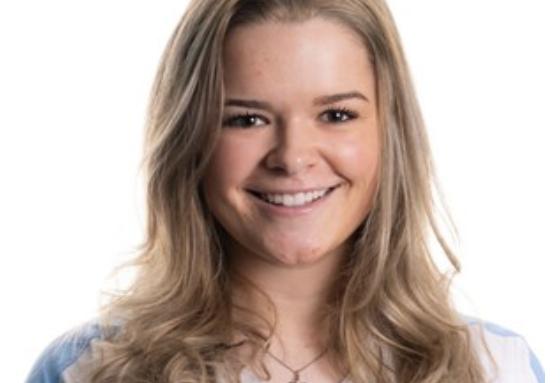

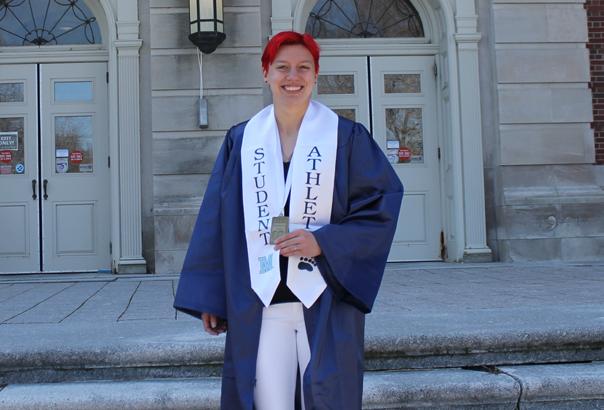
Maddie Kimble
Major: Biochemistry
Hometown: Avon, OH
High School: Saint Joseph Academy
Thesis: Characterizing MAB Cluster R Prophage of Pathogen Mycobacterium Abscessus
Advisor: Sally Malloy
Thesis Description: Mycobacterium abscessus is an opportunistic pathogen that is among the most resistant organisms to antibiotics. Viruses can integrate their DNA into the bacterial genome, known as a prophage. My research project aims to extract and characterize the prophages, through bioinformatics, from M. Abscesses clinical isolates.
Majors: Sociology; Political Science
Hometown: South Hadley, MA
High School: South Hadley High School
Thesis: The Effect of the September 11, 2001 Terror Attacks on Policing in Maine: The Officer’s Point of View
Advisor: Karyn Sporer
Thesis Description: This thesis examined the changes in policing that took place after 9/11 in the state of Maine. The main themes of this study were national security, local policing, and fusion centers. There was a general lack of consensus among the officers around their jobs. The thesis concludes with evidence based recommendations about the future of policing in Maine.
Kora Kukk
Major: Biomedical Engineering, minor in Nanotechnology
Hometown: Brookfield, CT
High School: Brookfield High School
Thesis: The Hate Within
Advisor: Katie Quirk
Thesis Description: A couple chapters, outline, and disquisition about a story meant for young adult audiences which incorporates the field of STEM into the storyline. The story is about a girl in high school who is diagnosed with a cancerous brain tumor. The treatment which saves her life ends up changing her personality and she must learn how to love and accept herself for who she is, not as how others see her.
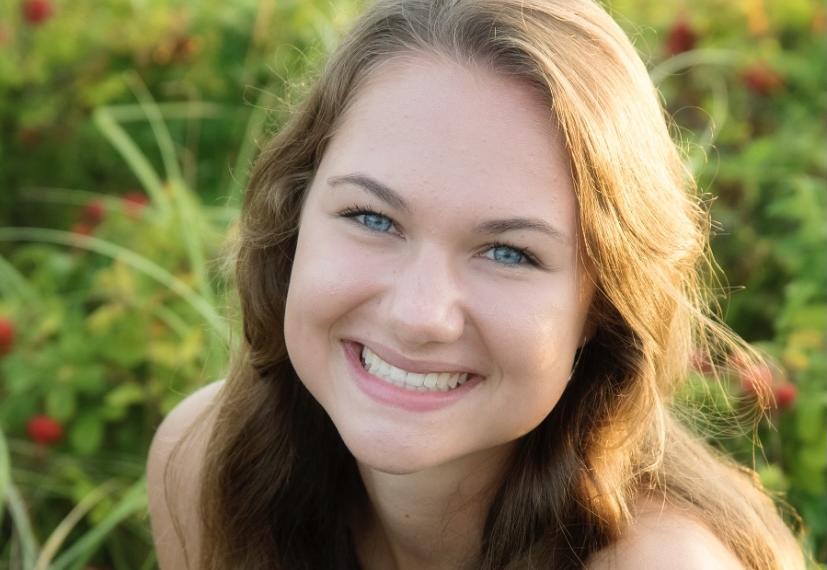
Joanna LaFrance
Major: Biology
Hometown: Alfred, ME
High School: Massabesic High School
Thesis: Exploring the Intersection of Race, Socioeconomic Status, Breastfeeding, and Breast Cancer
Advisor: Lynn Atkins
Thesis Description: Research shows a negative correlation between breastfeeding duration and parity with breast cancer rates. Black women have the lowest breastfeeding rates, high parity rates, and the highest rates of the most aggressive breast cancer subtype, triple-negative. A systemic analysis suggests that this finding is not due to biology and is more likely explained by social injustices faced by this group.

Sarah Latario
Major: Biochemistry, minor in Microbiology
Hometown: Groton, MA
High School: Groton-Dunstable Regional High School
Thesis: Regulation of Septins Through EpsinReceptor Interactions During Polarized Growth
Advisor: Joshua Kelley
Thesis Description: S. cerevisiae use a G-protein coupled receptor (GPCR) signaling pathway for mating that recognizes pheromone and leads to cell polarization and elongation. For this to occur properly, this signaling pathway and all its interactions must be tightly regulated, both spatially and temporally. My project focused on the role of epsins and gics in the regulation of septin localization in this pathway.

Sophia LaFrance
Major: Biology
Hometown: Alfred, ME
High School: Massabesic High School
Thesis: A Comprehensive Look into the Rates of Obesity in African American and White 6-11-Year-Old Children Relating to their Socioeconomic Status and Caloric Intake from Fast Food
Advisor: Leonard Kass
Thesis Description: Childhood obesity is a worldwide epidemic that is still rapidly increasing. This thesis collects and analyzes public government data to determine if the differences in the obesity rates between Black and white 6-11-year-olds are a result of their caloric intake from fast food resulting from their socioeconomic status.

Cassidy McCusker
Major: Psychology, minor in Childhood Development & Family Relations
Hometown: Windham, ME
High School: Cheverus High School
Thesis: The Impact of Mental Health Stigma on Hireability
Advisor: Mollie Ruben
Thesis Description: My Honors thesis was focused on the impact of mental health stigma on hireability. I created a study where participants rated applicants on their perceived competence, openness, warmth, stability, and overall hireability by only viewing their medical history forms, which documented their differing mental health diagnoses, past hospitalization history, current medication use, age, and gender.

Major: English, minor in Psychology
Hometown: Blackwood, NJ
High School: Washington Township High School
Thesis: “The Art of Breathing”: An Original Manuscript of Contemporary Feminist Poems
Advisor: Kathleen Ellis
Thesis Description: An experimental collection of poetry, which deals with issues of oppression and the female body.
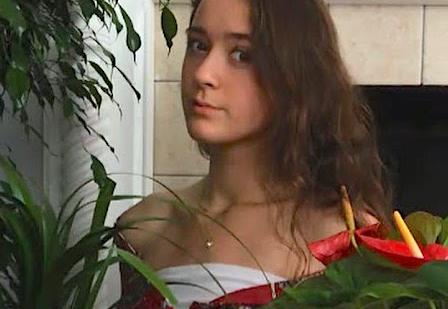
Hunter Merchant
Major: Botany
Hometown: Northport, ME
High School: Belfast Area High School
Thesis: Analysis of Conifer Terpenes and their Effect on the Feeding Habits of Browntail Moth (Euproctis chrysorrhoea) Larvae
Advisors: Barbara Cole and Angela Mech
Thesis Description: This thesis focuses on the feeding habits of browntail moth (BTM) larvae in relationship to conifer terpenes. The conifer distillates applied to BTM food sources are also analyzed by means of Gas Chromatography Mass Spectrometry.

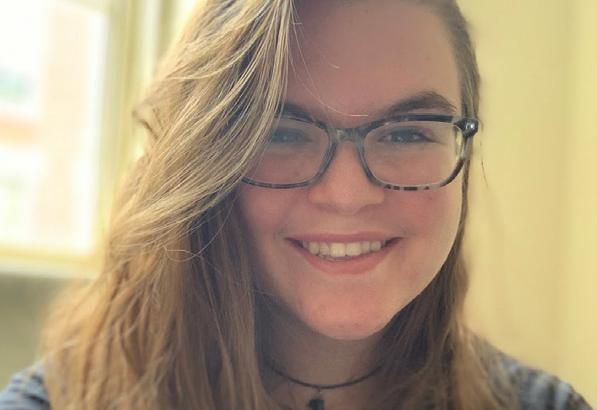
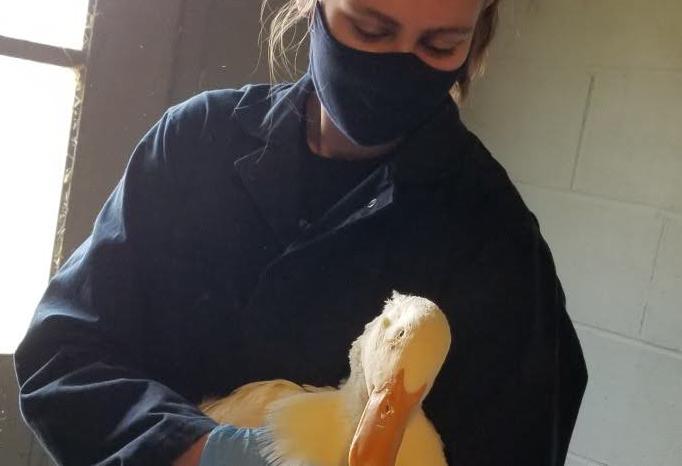
Haley Morril
Major: Microbiology
Hometown: Rangeley, ME
High School: Rangeley Lakes Regional High School
Thesis: An Investigation of the Relationship Between Black Soldier Fly Larvae Pathogen Suppression and Growth Substrate in Relation to Maine Agricultural Industries
Advisors: Edward Bernard
Thesis Description: BSFL suppresses the growth of some Gram-positive and Gram-negative human pathogens in these substrates; through suppression of Bacillus cereus, a spore-forming bacterium that causes food-poinsoning, has not been documented. This project focused on Bacillus cereus suppression by BSFL on byproducts (used as growth substrates) of two Maine agricultural industries: potatoes and blueberries.
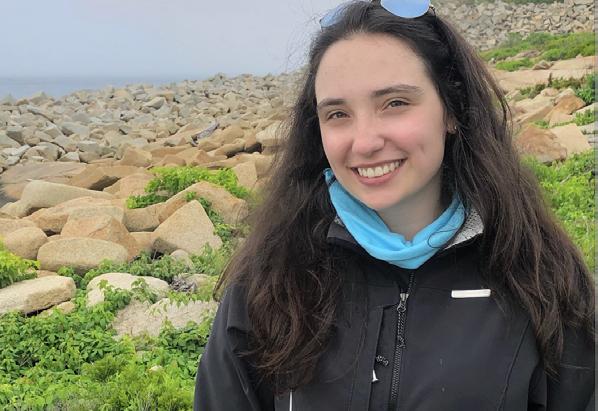
Major: Zoology, minors in Neuroscience and Psychology
Hometown: Raynham, MA
High School: Coyle-Cassidy Memorial High School
Thesis: The Relationship Between Kidney Function and Cognitive Function in Type II Diabetics
Advisors: Fayeza Ahmed and Michael Robbins
Thesis Description: My thesis investigated the relationship between kidney function and cognitive function in type II diabetics. By focusing on the kidney biomarkers of albumin and GFR, results yielded lowered performance in cognitive domains of executive function and working memory in type II diabetics.
Major: Marine Science
Hometown: Chelmsford, MA
High School: Chelmsford High School
Thesis: Breaking Down “Harassment” to Characterize Trends in Human Interaction Cases in Maine’s Pinnipeds
Advisors: Kristina Cammen
Thesis Description: Like all marine mammals, seals are protected in the United States by the Marine Mammal Protection Act, preventing any intentional harm, harassment, or killing of marine mammals. In Maine, the number of interactions between humans and seals has been rising in recent years. To better understand what interactions are occurring, we recategorized how we classify harassment of seals in Maine.
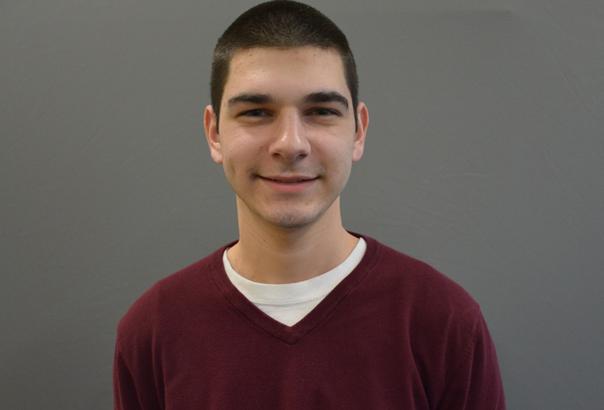
Majors: Biochemistry; Molecular & Cellular Biology
Hometown: Scarborough, ME
High School: Scarborough High School
Thesis: Studying Adult Neurogenesis with Telomerase Reverse Transcriptase (TERT), a Putative Adult Stem Cell Maker
Advisor: Kristy Townsend
Thesis Description: I studied adult neurogenesis, or the creation of new neurons in the adult brain, for my Honors thesis. To do this I used a novel cellular marker of adult stem cells, telomerase reverse transcriptase, to identify neural stem cells in the mouse brain and study their behavior in basal conditions.
Tuuli Overturf
Major: Animal & Veterinary Sciences, minor in Neuroscience
Hometown: Corinth, ME
High School: Central High School
Thesis: Control of a Ruminant Pathogen, Parelaphostronglyus tenuis, Using Poultry: Effects of Gastropod Diets on Ducks
Advisor: Anne Lichtenwalner
Thesis Description: An investigation into the use of ducks as a control for brainworm (Parelaphostrongylus tenuis)-infected gastropods. This study sought to discover whether ducks would ingest terrestrial snails, whether ducks could be harmed by ingesting brain worm-infected snails, and whether larvae could survive the gastrointestinal tract of the ducks and remain viable.
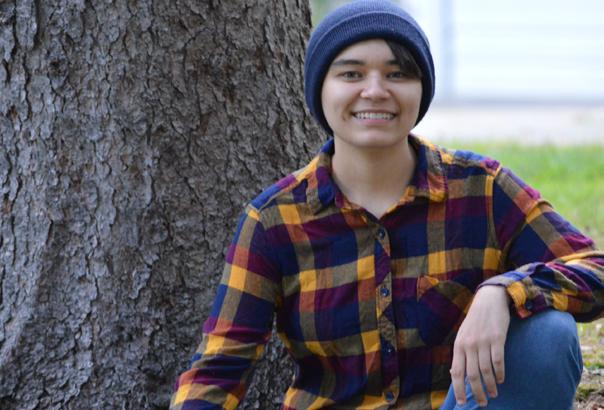
Majors: Psychology; English
Hometown: Saco, ME
High School: Biddeford High School
Thesis: the wall occupies a space too
Advisors: Jennifer Moxley
Thesis Description: “the wall occupies a space too” is a poetry manuscript that explores the self as well as the theme of freedom versus entrapment.
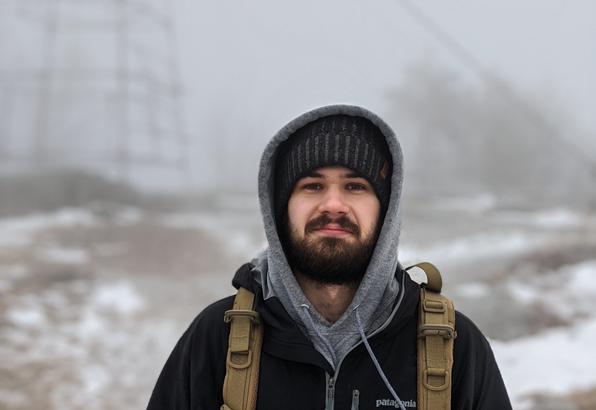
Nate Poole
Major: English, minor in Spanish
Hometown: South Berwick, ME
High School: Marshwood High School
Thesis: Speak for Yourself: Examining Subjectivity and Trauma in American Literary Journalism
Advisor: Caroline Bicks
Thesis Description: This thesis examines strategies and styles of communicating subjects and writers' experiences of trauma in three literary journalism texts.
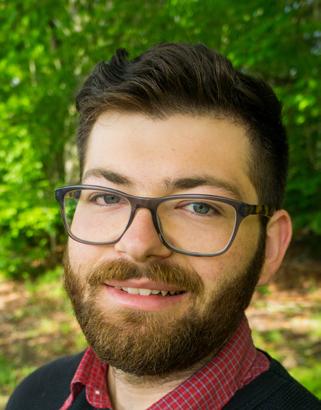
Major: Molecular & Cellular Biology
Hometown: Freeport, ME
High School: Freeport High School
Thesis: Antimicrobial Agent Cetylpyridinium Chloride Disrupts Immune Mast Cell Signaling: Elucidation of Molecular Mechanism with a Focus on Calcium Mobilization
Advisor: Julie Gosse
Thesis Description: Cetylpyridinium chloride (CPC) is used as an antimicrobial agent in many cleaning and cosmetic products. Little is known about the toxicology of CPC on eukaryotes, and such widespread exposure of CPC calls for investigation. Mast cells are key to our immune response, and we have demonstrated that CPC inhibits mast cell degranulation. This work aimed to investigate this mechanism of inhibition

Major: Marine Science, minor in Computer Science
Hometown: Coralville, IA
High School: West High School
Thesis: Fungal Communities of Ancient and Contemporary Antarctic Sponges
Advisor: Laurie Connell
Thesis Description: This study explores the fungal community compositions of ancient and in situ Antarctic sponges. It will compare the fungal communities found in the ancient and contemporary sponge samples with those found in Antarctic soil, ice, and water. This study also uses carbon dating to determine the age of the sponge samples.
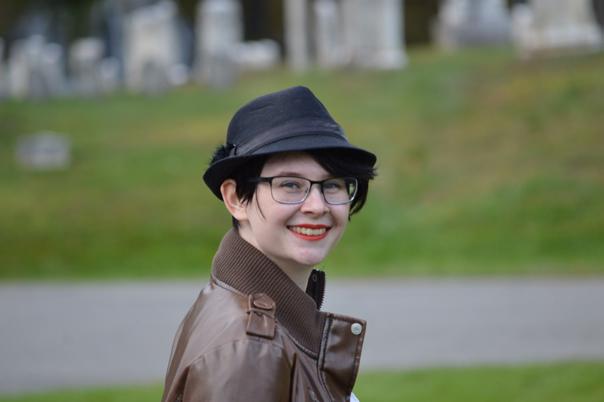
Majors: Political Science; International Affairs, minor in Economics
Hometown: Lithia, FL
High School: Strawberry Crest High School
Thesis: Domestic and Foreign Policy Priorities of Maine Voters
Advisors: Mark Brewer and Robert Glover
Thesis Description: A quantitative study of the top domestic and foreign policy priorities of Maine voters in the 2020 presidential election. This thesis considered overall state trends in comparison to national ones, as well as specific demographic differences within Maine based on age, gender, political affiliation, education level, income level, and urban vs. rural identity.
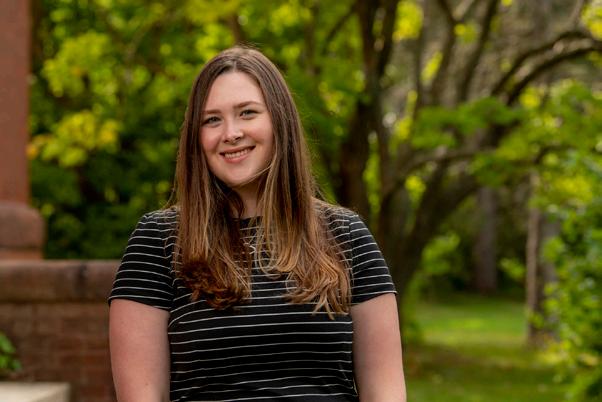
Major: English, minor in Political Science
Hometown: Westwood, MA
High School: Westwood High School
Thesis: What It Was & What I Know: Attempts at Family History
Advisors: Gregory Howard
Thesis Description: A series of lyrical essays evaluating family history, the truth, and where Reardon fits in it all.

Major: Chemistry
Hometown: Watertown, CT
High School: Watertown High School
Thesis: The Synthesis of Photoswitchable Triptan Derivatives
Advisors: Michael Kienzler and William Gramlich
Thesis Description: In this project, the synthesis of an indole intermediate is attempted. Ideally, an azobenzene would have been added to the 5th position (replacing the primary amine), producing a photoswitch. The transformation of the indole intermediate into a photoswitch is believed to be possible based on the structures of triptans.
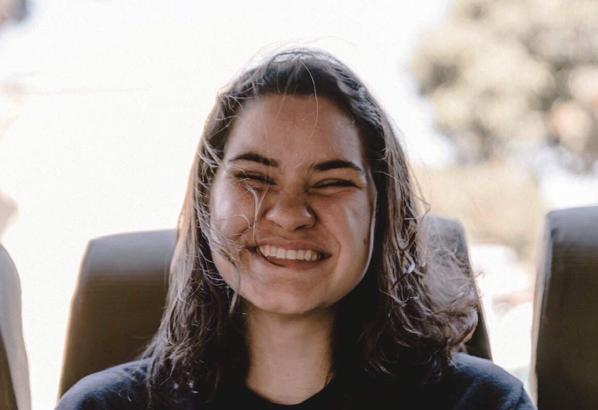

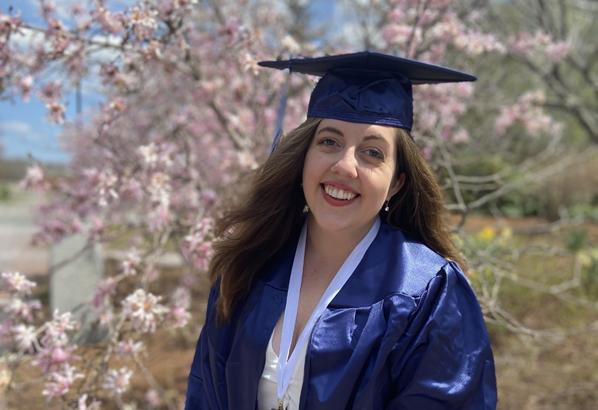
Major: Biology, minor in Studio Art
Hometown: Berlin, MA
High School: Tahanto Regional High School
Thesis: Characterization of a Novel CRISPR Vertebrate Model of Dolichyl-Phosphate Mannosyltransferase Subunit 3-Associated Secondary Dystroglycanopathies
Advisor: Clarissa Henry
Thesis Description: Secondary dystroglycanopathies are a subset of muscular dystrophies that result from mutations in genes that impact muscle fiber adhesion by disrupting the glycosylation of α-dystroglycan. One such gene is DPM3 and its mutation can cause devastating effects in humans. Here, we introduce a novel CRISPR model of DPM3 mutation in zebrafish that will allow us to better understand these diseases.

Major: Secondary Education
Hometown: Brimfield, MA
High School: Tantasqua Regional High School
Thesis: How Alumnae of a Feminist Organization During Middle-High School Perceive Their Involvement as Related to Their Academic Self-Concept
Advisors: Susan K. Gardner
Thesis Description: I interviewed six alumnae of the Girls Advisory Board of Hardy Girls Healthy Women, a ME-based nonprofit that focuses on the empowerment of young women. Alumnae recalled communityoriented affordances of activism, high work ethic, increased personal understanding and empowerment via activism, and a multifaceted academic self-concept as related to their involvement in activism.
Nathan Shunk
Major: Marine Science, minors in Mathematics and Earth Sciences
Hometown: State College, PA
High School: State College Area High School
Thesis: Enso Cycle Driven Spatio-temporal Variability of Temperature, Salinity, and Nitrate in the California Current
Advisor: Andrew Thomas
Thesis Description: I examined the spatiotemporal variability of temperature, salinity, and nitrate in the context of the El Nino Southern Oscillation cycles in the California Current System. I used in situ bottle data from the California Oceanic Fisheries Investigations database from 1979 to 2018 to develop quarterly climatologies of El Nino, La Nina, and neutral periods, indexed using NOAA’s MEI.v2.
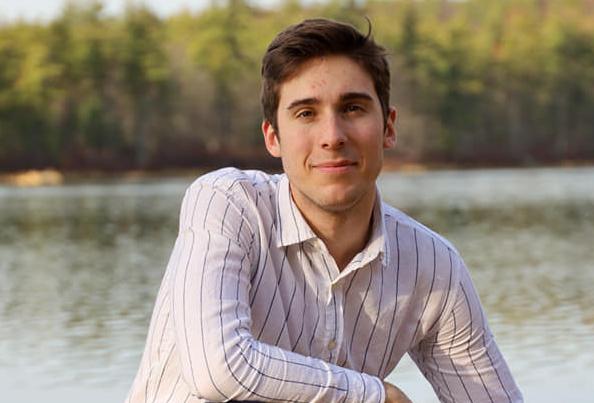
Majors: Economics; Political Science
Hometown: Columbia Falls, ME
High School: Washington Academy
Thesis: Effects of the Transportation and Climate Initiative on the Maine Economy: An Analysis of Cap-and-Invest and its Heterogeneous Impacts on Rural and Urban Households
Advisor: Jonathan Rubin
Thesis Description: The Transportation and Climate Initiative Program (TCI-P) is a regional cap-and-invest program for the mid-Atlantic and New England states that seeks to reduce emissions from the transportation sector by 26% from 2023 to 2032. My thesis examines the potential heterogeneous impacts the program could have on Maine households should the state participate in the future.
Major: Wildlife Ecology
Hometown: Blackwood, NJ
High School: Highland Regional High School
Thesis: Evaluating the Capacity of Ascophyllum nodosum Habitats to Act as Carbon Sinks in the Gulf of Maine
Advisors: Amanda Klemmer
Thesis Description: This study explores the ability of wild, unmanaged macroalgal communities in Maine to absorb carbon dioxide from seawater and mitigate local effects of climate change.

Majors: Secondary Education; English Hometown: Hampden, ME
High School: Hampden Academy
Thesis: GOD BLESS AMERICA(N DREAM)
Advisor: Jennifer Moxley
Thesis Description: My work in my creative thesis, which is a collection of poetry, challenges and deconstructs American national mythology–––beliefs about America which have become so normalized that they are often presented as apolitical, non-ideological truths that the arguments and justifications for often don’t have to be stated, much less defended.
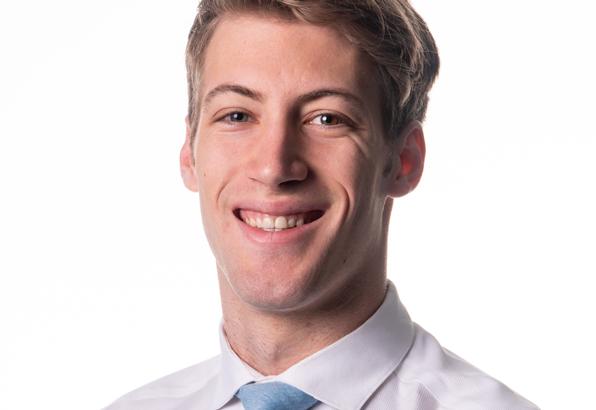
Cam Spicer
Major: Finance and Financial Economics
Hometown: Erie, CO
High School: Centaurus High School
Thesis: The Role of the IEX in a Fragmented Market System
Advisor: Stephen Jurich
Thesis Description: Cam’s Thesis evaluates how the Investors Exchange (IEX) fits into a fragmented equities market system. His research creates a detailed overview of fragmentation, then creates an empirical analysis of market share, volume, and IEX statistics to evaluate the role of the IEX in the market system. He found that the IEX effectively deters HFT behavior and has created a niche entry point to the market.
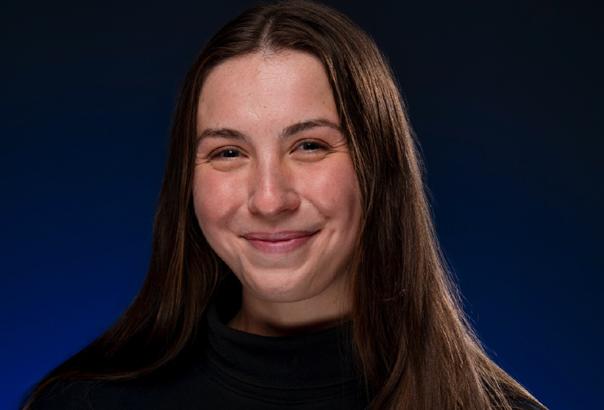
Caroline Strolic
Major: Art History, minor in History
Hometown: Phoenix, AZ
High School: Notre Dame Preparatory High School
Thesis: Benjamin West’s Hybrid Identity: The Construction and Reconstruction of an AngloAmerican Artist
Advisor: Justin Wolff
Thesis Description: This thesis explores how Benjamin West came to be known as the father of American art through the creation and inhabiting of differing personas, Anglo and American, throughout his career.
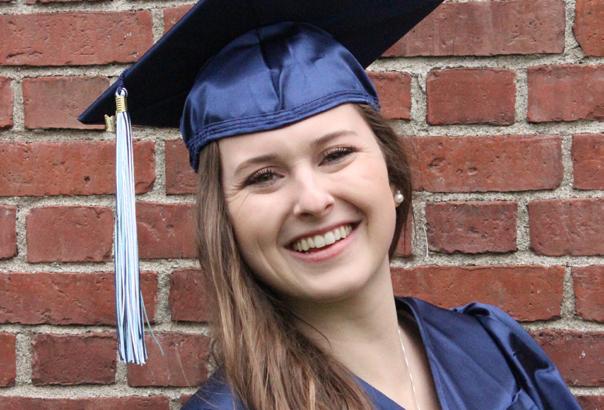
Madison Stahle
Major: Animal & Veterinary Sciences
Hometown: Wiscasset, ME
High School: Boothbay Region High School
Thesis: Identifying Risk Factors of Anaplasma Infection in Plains Zebra of Etosha National Park, Namibia
Advisor: Pauline Kamath
Thesis Description: This thesis worked to identify the prevalence and risk factors of Anaplasma infection in plains zebra (Equus quagga) of the Etosha National Park, Namibia. This was done using a nested PCR reaction, followed by a statistical analysis using generalized linear models to determine risk factors which were significant to the risk of Anaplasma infection.

Katie Tims
Major: Biology, minor in Sustainable Food Systems
Hometown: Cornish, ME
High School: Sacopee Valley High School
Thesis: Scientific Knowledge Shaping Perceptions of Bioengineered Food Among Undergraduate Students
Advisor: Ek Han Tan
Thesis Description: Prompted by the recent USDA mandate for bioengineering food labeling and broad misconceptions often reported by young adults, this work includes an analysis of students’ paired survey responses focusing on current students’ perspectives towards GMOs and bioengineered food products before and after completing an undergraduate genetics course.

Paige Strasko
Major: Ecology & Environmental Sciences
Hometown: Easton, PA
High School: Easton Area High School
Thesis: Chytridiomycota in Tree Bark
Advisor: Seanna Annis
Thesis Description: In this study, Chytridiomycota (microscopic aquatic fungi) were collected from bark samples and soil at the base of red maple (Acer rubrum) trees and amur cork (Phellodendron amurense) trees in three northeast locations. Internal transcribed spacer regions of the ribosomal gene cassette were amplified from extracted Chytridiomycota DNA for sequencing and will be used to identify the genera of chytrids collected and isolated from samples.
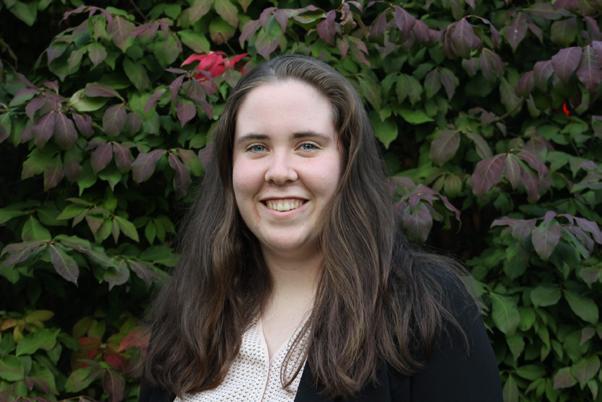
Major: Biomedical Engineering
Hometown: Prospect, CT
High School: Woodland Regional High School
Thesis: Evaluating the Potential of Porous Foam Metals to Enhance Retention of Tags in Fish
Advisor: David Neivandt
Thesis Description: Studies that involve tagging fish are dependent on the retention of the tags. The inability of the wound created during the tag application to heal properly can lead to a tag being shed. This project aimed to develop a fish tag made from porous foam metal that would facilitate dermal and subcutaneous tissue ingrowth, thereby promoting wound healing and a more secure tag attachment.
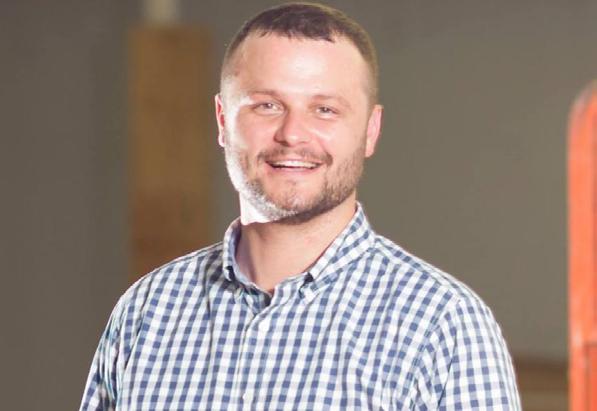
Aaron Watt
Major: Philosophy, minors in Legal Studies and Political Science
Hometown: Hampden, ME
High School: Central High School
Thesis: What are Sex and Gender?
Advisor: Mark Brewer
Thesis Description: What are sex and gender? Newly stipulated definitions are quickly evolving. Are these new ideas of sex and gender viable ones? This paper will look at both historic perspectives of sex and gender as well as new ones. Is there a definition that most accurately corresponds to our identity?

Alexis Welch
Major: Biology
Hometown: Boothbay, ME
High School: Boothbay Region High School
Thesis: The Effect of Waste and Waste Management on the University of Maine and Community During the COVID-19 Pandemic
Advisor: Allison Gardner
Thesis Description: This study looked to learn how the University of Maine community perceives waste and how the COVID-19 pandemic affected those perceptions of the waste, using information collected from an analysis of campus waste in 2019 and 2020 and from a survey distributed to University of Maine community members.
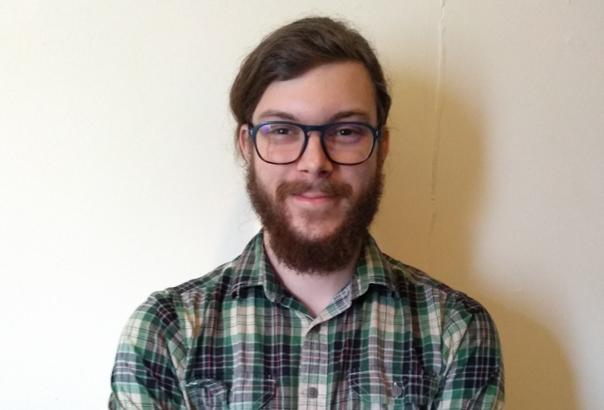
Gerren Welch
Major: Physics, minors in Mathematics and Biology
Hometown: Sidney, ME
High School: Messalonskee High School
Thesis: Computational Analysis and Classification of SHG Images of Cancerous Pancreatic Tissue Based on Collagen Fiber Alignment
Advisor: Karissa Tilbury
Thesis Description: Pancreatic cancer is a deadly disease, with a low five-year survival rate partly due to the difficulty in diagnosing the cancer early in its development. Using Second Harmonic Generation (SHG) microscopy and computer analysis, our knowledge of the biophysics of the pancreatic tumor microenvironment increases which may lead to the development of more effective therapies.
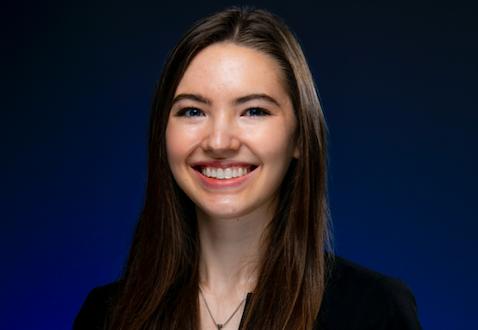
Major: Biochemistry
Hometown: Stockton Springs, ME
High School: Searsport District High School
Thesis: Oral-care Antimicrobial
Cetylpyridinium Chloride Inhibits Mast Cell Function: Role of Tyrosine Phosphorylation
Cascade
Advisor: Julie Gosse
Thesis Description: Cetylpyridinium chloride (CPC) is a widespread antimicrobial agent used in numerous personal-care and cleaning products, but there is minimal information about how CPC impacts human health and immune function specifically. We found that CPC inhibits the function of mast cells, an important component of the immune system, via suppression of cellular signaling, particularly tyrosine phosphorylation.

Colin Welch
Major: Microbiology, minors in Business Administration
Hometown: Saint Cloud, FL
High School: Saint Cloud High School
Thesis: Characterizing the Diversity of Cluster R Prophage in Mycobacterium abscessus
Advisor: Sally Molloy
Thesis Description: This thesis looks at viral genomes that have integrated into the genome of Mycobacterium abscessus, known as prophages. In other bacterial pathogens, prophages can influence fitness and virulence, including antibiotic resistance, but prophages are not highly studied in M. abscessus. We identified 14 prophages, with eight related to a mycobacterial prophage that increases antibiotic resistance.
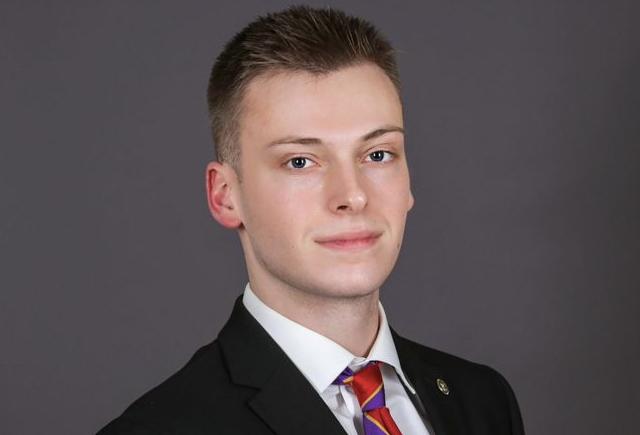
Major: Mechanical Engineering
Hometown: Whitehouse Station, NJ
High School: Delbarton School
Thesis: Efficiency of the United States Navy’s Mid-Air Refueling System: Do the Best Pilots in the World Use the Best Equipment?
Advisor: Glenn Pierce
Thesis Description: I studied the aerodynamic efficiency of the United States Navy’s current mid-air refueling apparatus. Specifically, I compared the drag produced by the Navy’s system and compared it to the drag produced by my own design, which tied into my mechanical engineering capstone. The designs were modeled using 3-D printed parts, tested in the Crosby Lab wind tunnel, then scaled to real-world sizes.

Patrick White
Major: Political Science, minor in Leadership Studies
Hometown: Waldoboro, ME
High School: Medomak Valley High School
Thesis: Symbiotic Suppression: How Digital Authoritarianism Helps Facilitate Physical Repression in Indian Controlled Kashmir
Advisor: Rob Glover
Thesis Description: Through examining a broad collection of Kashmiri activist, survivor, journalist, and NGO accounts, this thesis contends that digital authoritarianism and physical repression can actually thrive symbiotically—offering substantial dividends for the regime at the expense of the civilian dissent.

Benjamin Williams
Majors: Biochemistry; Microbiology
Hometown: Cumberland, ME
High School: Greely High School
Thesis: Infection and Diet-Induced Gut
Dysbiosis: Impact on Sleep Quality in Danio rerio
Advisors: Robert Wheeler and Marie Hayes
Thesis Description: Ben Williams’ thesis describes a reverse translational study inspired by the clinical observation that aging adults who consumed a diet higher in fat and sugar exhibited disrupted sleep quality. Zebrafish larvae were either fed a high fat diet or directly infected with human fungal pathogen Candida before having their pro-inflammatory gene expression and sleep quality assessed.
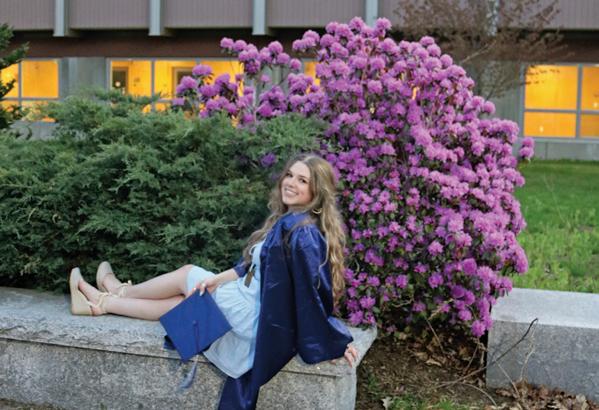
Sophia Wilcox
Major: Ecology & Environmental Sciences
Hometown: Brunswick, MD
High School: Quince Orchard High School
Thesis: Capturing Climate Change: Investigating the Connections Between Environmental Science & Photography
Advisor: Michael Grillo
Thesis Description: Photography and environmental science are two differing fields which find themselves far more interconnected than what one may think. The technology of photography gives environmental scientists the ability to capture and communicate the urgency of certain issues. By doing so, we can educate the public about these issues and communicate the importance in ways that are easy to understand.

Major: Biology, minors in Neuroscience and Psychology
Hometown: Parkman, ME
High School: Piscataquis Community High School
Thesis: Investigating the Link Between AgingRelated Vascular Dysfunction and Peripheral Neuropathy Through Pressure Myography
Advisors: Kristy Townsend
Thesis Description: This thesis focused on neurovascular dysfunction within peripheral tissues as a result of aging. In order to test the integrity of the vasculature within the inguinal subcutaneous white depot of a murine model, a pressure myography system was built by hand and tested for functionality in order to perform pressure myography experiments.

Majors: Journalism; Media Studies, minors in Psychology and Education
Hometown: Monmouth, ME
High School: Monmouth Academy
Thesis: “Phones Bad”: An Exploratory Case Study Analysis of Social Media and Ostracism
Advisors: Michael Socolow and Kathleen Ellis
Thesis Description: Quantitative deductive data were collected with a survey including the Social Media Usage Disorder Scale before and during the pandemic, and the Ostracism Experience Scale for Adolescents. Qualitative, inductive interviews were analyzed in terms of an exploratory case study examining each individual’s relationship with social media.

Major: Marine Science
Hometown: Ticonderoga, NY
High School: Ticonderoga Senior High School
Thesis: Abundance of Shell-Boring Polychaete Worms and Other Fouling Organisms in Aquaculture Oysters from Maine Used for Reef Restoration in Great Bay, NH
Advisor: Paul Rawson
Thesis Description: Eastern oysters from aquaculture farms throughout Maine were inspected for various fouling species, with a focus on shell-boring polychaetes. The polychaetes found were sampled and identified using both morphological and DNA-based analysis. The amount of fouling and species present determined whether or not the oysters could be used for reef restoration in Great Bay, NH.
OUR GENEROUS donors are essential in helping us enrich the educational opportunities available to our students. Donors' gifts make possible study abroad opportunities, research funding, thesis fellowships, guest lectures, community engagement, and conference travel. We truly appreciate all of our supporters, and it is a pleasure to acknowledge the following donors to the Honors College from July 1, 2020 to June 30, 2021.
Jules Acheson
Pamelia Brockway Adams
Elizabeth J. Allan, Ph.D. and Brian Rahill
Kenneth Allen
François G. Amar, Ph.D.
Wade A. Amos
Thomas M. Armstrong, Sr.
Rusty and Suzanne Atwood
Eleanor M. Baker and Thomas W. Saturley, CAI
Richard F. Barter, Ph.D.
Paul C. Bauschatz, Ph.D. and Cathleen M. Bauschatz, Ph.D.
Ruth Beamis
Todd Beauregard
Kristin Beebe and Thomas Beebe
Sharon Kimball Beever and Mark Beever
John P. Beisheim and Deborah Holt Beisheim
Belfast Rotary Club
Erica E. Bickford
Thomas L. Bickford and Dorothy F. Bickford
Tracy Bronson Bigney and Timothy A. Rogers
Ronald L. Bissonnette
Frederic C. Blow and Dwight Lewis
Dr. Richard A. Boss, Jr. and Mary Newhall Boss
Emmanuel S. Boss, Ph.D. and Lee Karp-Boss, Ph.D.
Karen Boyce
Joanne E. Boynton
Dr. Scott T. Brickman
John C. Bridge* and Charlene R. Bridge
Sharon Bailey Brinn
David L. Bronson, M.D. and Kathleen S. Franco, M.D.
Patricia Brown
Shawn Corey Bryce and Robert E. Bryce, II
Lt. Col. Peter J. Buotte
Nancy Sereyko Burgoyne and John S. Burgoyne
*Deceased
Linda Burns
Dr. Alfred A. Bushway and Esther McClain Bushway
Beth Clark Bussard
Paul F. Butler and Janet Bishop Butler
Brenda I. Buttarazzi
Linda S. Card
Tiffany Warzecha Carlson and Erik Carlson
Elizabeth B. Cashman
Jill Gallagher Cielinski and Dr. Matthew J. Cielinski
Class of 1953
Philip M. Coffin, III and Susan Peck
Andrew Corum
Eugene D. Cote, III and Lisa D’Agostine Cote
Michael J. Cowell and Carolyn A. Cowell
Lyle B. Cramer and Janice Blethen Cramer
Dr. Heidi A. Crosby and Richard A. Becker
Dr. Kerry W. Crowley
Daniel L. Cummings and Betsey Mills Cummings
Joseph H. Cyr and Suzanne M. Cyr
Brian J. Czerniecki, M.D., Ph.D. and Cindy Czerniecki
Ms. Jenya H. Damsky
Julie Mullen DellaMattera
Judith Ann DiSpirito
Cara P. Doiron
Dr. Richard L. Doty and Ruth F. Doty
Thomas and Dianne Dowd
Megan Elizabeth Driscoll
Terry Driscoll and James Driscoll
Nancy Gagnon Dubord and David Dubord
G. Clifton Eames and Kay Byther Eames
Blythe Edwards and Robert H. Edwards
Willard R. Ellis
Jim Emery
Norman R. Emery and Elaine Penley Emery
Epstein & O’Donovan, LLP
Sarah Gamble Erdman and Jonathan Erdman
Cornelia A. Evans
Dr. George J. Eyerer and Dr. Mary Eyerer
Dr. Robert W. Fagerlund
Dr. Edward J. Farmlett and Mary Jane Farmlett
Fidelity Foundation
Debra Fish and James Fish
Nancy S. Flynn and Joseph Flynn
Dr. William L. Foley
Robert Fowler
Dr. Robert D. Franzosa
Gilles Fraser
Lee A. Gagnon* and Susan Kauffman*
Michael Gagnon
Mary E. Gamage and Jeffrey B. Griffiths
Robert W. Glover
Emory K. Gott II and Valerie Gott
GPD - UMaine Foundation Special Situations
William Gramlich and Sara Walton
Joyce Reed Greenacre and Allen J. Greenacre
Susan Fowle Greenwood and Michael S. Greenwood, Ph.D.
Dr. Kristen E. Gwinn-Becker and Amy Gwinn-Becker
H. M. Payson & Company
Don Hamilton
Ellen Harris
Frank H. Harrison
Mark R. Haskell and Katherine Z. Haskell
Robert R. Hickman and Anne M. Hickman
Dr. Keith W. Hutchison
Maryann Herrin Ingalls
Laurie Joannette
William D. Johnson and Mary Atkinson
Johnson
Dr. J. Michael Joly
Rendle A. Jones and Patricia Kopfmann Jones
Grace M. Kiffney
Caitlin Church Kiley and Kevin A. Kiley
Dr. Margaret O. Killinger and Dr. Eric A Pandiscio
Nancy Pearson Kinney and Dr. Mark B. Kinney
Jay S. Knowlton
Phillips Kuhl and Karen Kuhl
Erik Kukk
Katharina H. Kurz
Melissa R. Ladenheim, Ph.D.
Dr. Benjamin A. Lakin and Dr. Laura Kuhl
Corina Larsen
David Larsen
Katie Lattari & Kevin Foss
Jane Ledyard Lazo
William R. Leitch
Rev. Glenn M. Libby
Jay R. Libby and Kathryn Ward Libby
Dr. Charles W. Little and Mary Little
Nancy S. Long and Dr. John M. Long
Samantha Lott Hale and Marcus B. Hale
William M. Lott and Andrea Hayes Lott
Dr. Wendy Love
Howard P. Lowell
James M. Lyons
Dr. Jean D. MacRae and Farahad Dastoor, Ph.D.
Sylvia Granath Marini and Dr. Alfred J. Marini
Robert E. McAfee, M.D.
Paul McGuire
Peter Mellis and Susan T. Mellis
Laura Wilson Messinger
Clarissa Michalak Midzi and Kundai Midzi
Michaud Family Properties, LLC.
Jan Michaud
Jason S. Michaud and Christine Landry Michaud
Jean Leighton Mileham
Jeffery N. Mills, Ph.D. and Tammy M. Mills, Ph.D.
Robert S. Mills
Thimi R. Mina
Leonard and Renee Minsky Charitable Trust
Leonard E. Minsky* and Renee Minsky
Patricia Meyer Morell and Allen N. Morell
Dr. George L. Morton and Jacqueline Gammon Morton
New Covenant Foundation
Dennis J. O’Donovan and Anne E. O’Donovan
Old Town Rotary Club
Jacqueline Staples Olson
Karen Thode O’Neil and Paul M. O’Neil
H. Michael Opitz, D.V.M.
Alonzo K. Osgood
Marc C. Owen and Suzette Paes Owen
Jennifer Page
Dr. Laurel Anne Parker
Roberta Parritt and George McLaughlin
Jeanne Robbins Peacock
Joline Ridlon Perkins
Rosemary Pillsbury
Barbara A. Prescott
Katie Quirk
Robert A. Ray and Joyce Beane Ray
Katherine Boyce Reardon
Lawrence F. Record, Jr. and Peggy A. Record
Redfin Solutions, LLC
James Redstone and Katherine Knowland
Retail Business Services
J. Beau Rezendes, Ph.D.
Lawrence A. Richards
Douglas A. Richardson and Shirley Palmer Richardson
George A. Ricker* and Margaret Dow Ricker
Dwight L. Rideout and Jan Lord Rideout
Dr. Richard R. Riker and Alison Nightingale Riker
Trish Riley
Seth Robertson and Susanne Wakerly Robertson
Dr. Clifford J. Rosen and Rebecca Abell Rosen
Lauren Ashley Ryan
Schwab Charitable Fund
Robert F. Sherlock
Megan Kathleen Sinclair
Hon. George Z. Singal and Ruthanne Striar Singal
Eileen F. Skinner and John Skinner
Marilyn Leslie Sly and Newell S. Sly
David W. Small and Deborah M. Small
Larry D. Smith, Ph.D. and Linda K. Silka, Ph.D.
Matthew D. Smyth
Brent Snow
William L. Somes
Bethany L. Spangelo
Bonnie Going Spies and Charles J. Spies, III
William H. Springer* and Christine Peterka Springer
Charles V. Stanhope
Valerie Stelling
Karen L. Studholme and David Studholme
Gail Peters Swenson and Roy E. Swenson
Kathleen M. Sykes
Nancy McKeever Targett, Ph.D. and Timothy E. Targett, Ph.D.
M. Ross Thaxter*
Colleen McGrath Tims and Robert L. Tims
Michael B. Trainor and Ann D. Trainor
Deborah Tymm
Raymond A. Updyke
Lindsay & Markus Videnieks
Justin K. Vreeland
Lauren Wahl
Mark H. Waite
Sara Lynn Walton and William M. Gramlich
Denham S. Ward, M.D., Ph.D. and Debbie Lipscomb*
Marty and Mary Waterman
Deborah Wathen Finn
Ellen Weinauer and Jonathan Barron
Allan R. Whitmore
Daniel G. Willett
Daniel B. Williams and Emily Ann Cain
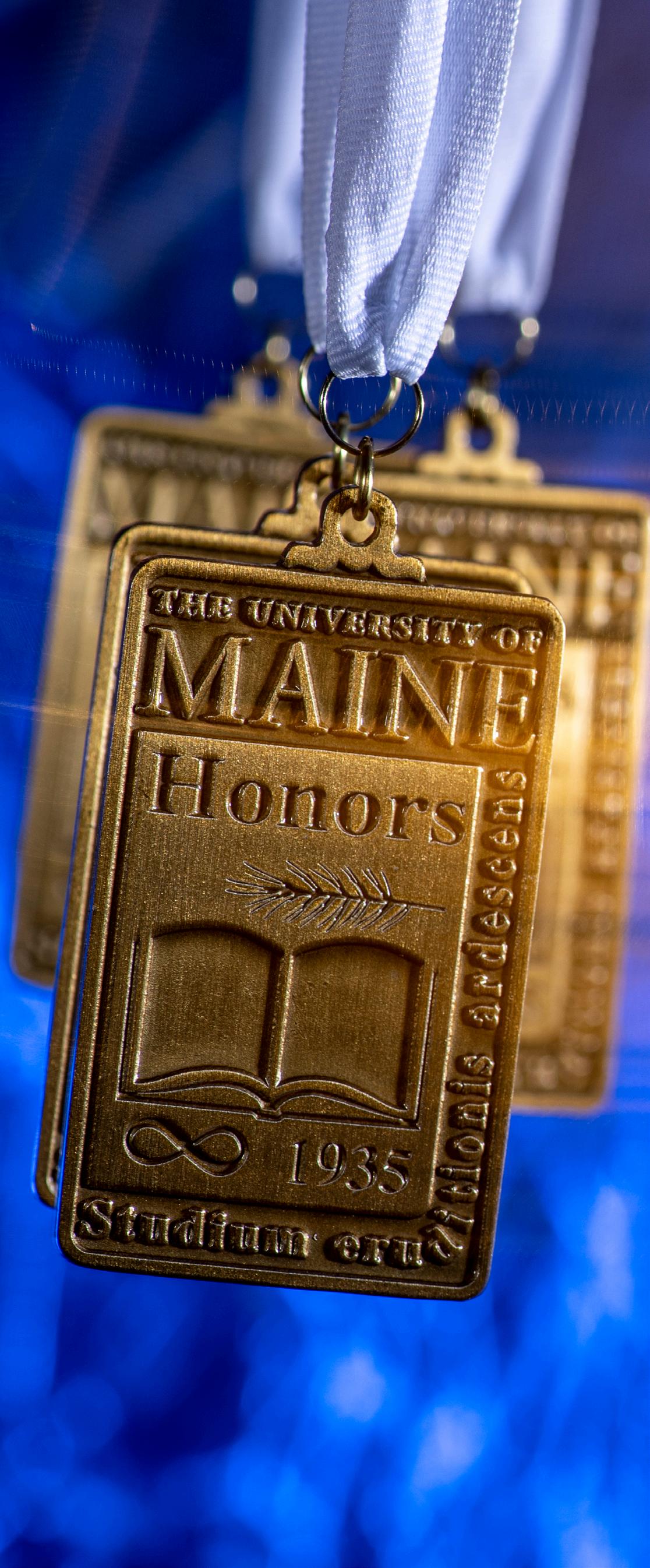
PRIVATE SUPPORT of the University of Maine Honors College enriches the student experience and is vital to the programs offered.
There are many ways to turn assets into benefits for the college. Gifts can be made in the form of bequests, outright donations of tangible and intangible assets, pledges, charitable trusts, annuities, retirement funds and life insurance proceeds. Gift designations can support scholarships, fellowships, travel, guest lectures, facilities, and other needs of the students and faculty of the Honors College.
University of Maine Foundation staff are available to assist donors in planning gifts that meet their specific philanthropic goals.
Robert B. Thomson Honors Center
umaine.edu/honors
